Thomas Mann House Events Archive
2019
An Afternoon with Maestro James Conlon: "Thomas Mann and the Music of Exile"
Los Angeles

To shine a spotlight on the music by composers suppressed by the Nazi regime, LA Opera Music Director James Conlon founded the groundbreaking Recovered Voices project. The Ziering-Conlon Initiative for Recovered Voices sponsors seminars, academic conferences, and competitions in an effort to present a deeper understanding of the history of the émigré music from the first half of the 20th century.
The afternoon of music with Maestro James Conlon is held in the spirit of the gatherings in the home of musical connoisseur Thomas Mann. Friends, neighbors and other émigrés met regularly at the piano and the gramophone in the living room of the Mann family on San Remo Drive.The event with the Colburn School turns the attention to chamber music from émigré composers in Southern California and invites to joint conversation.
Maestro James Conlon is Los Angeles Opera Music Director and founder of the Ziering-Conlon Initiative for Recovered Voices. He is one of the most versatile and eminent conductors of our time. Prior to his engagement in Los Angeles, Maestro Conlon was the Principal Conductor of Paris Opera (1995-2004) and Music Director of the Gürzenich Orchestra and Cologne Opera (1989-2003).
Location
Thomas Mann House, 1550 N San Remo Drive, Pacific Palisades, CA 90272
Tickets
by invitation only
An event in cooperation with the Colburn School, Los Angeles.

Lecture Tour Andreas Reckwitz: "The Crisis of Liberalism in Europe and the Transformation of Class Structure" [CANCELLED]
Washington DC
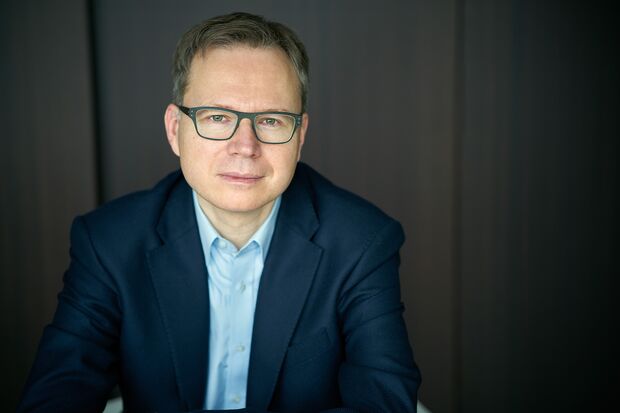
In recent years, the rise of right-wing populism in Germany, France or Italy, the Brexit-decision in Britain are signals of a deep crisis in which European liberal politics, dominating since the 1980s, have got. What are the causes of this crisis? In his lecture series Andreas Reckwitz elucidates that beneath the surface of political conflict there has been a profound transformation on the economic and cultural level taking place in all European countries which swept away the foundations of former industrial modernity. As a consequence of postindustrialization and value change a new structure of social and cultural classes has emerged which imply antagonistic forms of life. Above all, the new antagonism between a new middle class and a traditional middle class turns out as the background of the political crisis.
Andreas Reckwitz is professor of sociology at the European University of Frankfurt/ Oder, Germany. He is currently Thomas-Mann-Fellow at the Thomas Mann House in Los Angeles and was awarded with the Leibniz prize 2019. He is the author of several books in the field of social theory and cultural sociology. His recent book “The Society of Singularities. The transformation of modernity” (Suhrkamp 2017) was awarded with several book prizes and is translated into five languages. He is a regular author of the German weekly paper Die Zeit.
Location
WE REGRET TO ANNOUNCE THAT THIS EVENT HAS BEEN CANCELLED.
An event in cooperation with the DFG (German Research Foundation), GHI Washington DC and the George Washington University.



Lecture Tour Andreas Reckwitz: "The Crisis of Liberalism in Europe and the Transformation of Class Structure" [CANCELLED]
New York City

In recent years, the rise of right-wing populism in Germany, France or Italy, the Brexit-decision in Britain are signals of a deep crisis in which European liberal politics, dominating since the 1980s, have got. What are the causes of this crisis? In his lecture series Andreas Reckwitz elucidates that beneath the surface of political conflict there has been a profound transformation on the economic and cultural level taking place in all European countries which swept away the foundations of former industrial modernity. As a consequence of postindustrialization and value change a new structure of social and cultural classes has emerged which imply antagonistic forms of life. Above all, the new antagonism between a new middle class and a traditional middle class turns out as the background of the political crisis.
Andreas Reckwitz is professor of sociology at the European University of Frankfurt/ Oder, Germany. He is currently Thomas-Mann-Fellow at the Thomas Mann House in Los Angeles and was awarded with the Leibniz prize 2019. He is the author of several books in the field of social theory and cultural sociology. His recent book “The Society of Singularities. The transformation of modernity” (Suhrkamp 2017) was awarded with several book prizes and is translated into five languages. He is a regular author of the German weekly paper Die Zeit.
Location
WE REGRET TO ANNOUNCE THAT THIS EVENT HAS BEEN CANCELLED.
An event in cooperation with the German Academy New York.
Lecture Andreas Platthaus: "An American in Berlin — What Kept Lyonel Feininger?"
Hanover, NH

Thomas Mann Fellow Andreas Platthaus is invited to Dartmouth College for a presentation at the Department of German Studies, to investigate: An American in Berlin — What Kept Lyonel Feininger? For his upcoming book project on the Bauhaus, Platthaus is looking at the forced ruptures within the history of Bauhaus—the move from Weimar to Dessau in 1925, the relocation to Berlin in 1932, and the forced closure of the school in 1933—and the resulting transformation in self-concept, aesthetics, and politics of the Bauhaus. In this project, Andreas Platthaus is turning in particular to Lyonel Feininger. The American at Bauhaus remained in Nazi-Germany until 1938,when he returned to the United States, but always remained true to his convictions. Platthaus will speak of the pressure to adapt and the forces of resistance in times of rising social radicalization.
Andreas Platthaus is a German journalist and author based in Leipzig and Frankfurt (Main). He studied economics and rhetorics, philosophy, and history in Aachen and Tübingen. He is vice directing editor of the cultural section, as well as editor for literature at the German daily newspaper Frankfurter Allgemeine Zeitung. In 2018, he received a Thomas Mann Fellowship and he is the author of multiple books, including “Der Krieg nach dem Krieg — Deutschland zwischen Revolution und Versailles 1918/19” (Rowohlt, 2018).
Location
Dartmouth College
Hanover, NH 03755
An event in cooperation with Dartmouth College.

Lecture Tour Andreas Reckwitz: "The Society of Singularities" [CANCELLED]
Cambridge, MA

The culture of Western late-modernity is not that of industrial modernity any more: To a high degree it is centered around the fabrication of singularities, i.e. of entities like objects, subjects, places, events and collectivities which are grasped as unique and particular. Attention, valorization and affect is given to the apparently unique, not to the standardized. There is a paradoxical social logic of singularization taking place embracing cultural capitalism, media technologies, life-styles and politics. What are the causes, patterns and consequences of this society of singularities? It turns out that as soon as singularizations are the focus of wide-ranging social patterns they tend to asymmetries and polarizations which are characteristic of the late-modern present.
The book "The Society of Singularities" was published 2018 in German at Suhrkamp, received several book prizes and is currently translated into five languages. The English edition appears at Polity, Cambridge.
Andreas Reckwitz is professor of sociology at the European University of Frankfurt/ Oder, Germany. He is currently Thomas-Mann-Fellow at the Thomas Mann House in Los Angeles and was awarded with the Leibniz prize 2019. He is the author of several books in the field of social theory and cultural sociology. His recent book “The Society of Singularities. The transformation of modernity” (Suhrkamp 2017) was awarded with several book prizes and is translated into five languages. He is a regular author of the German weekly paper Die Zeit.
Location
WE REGRET TO ANNOUNCE THAT THIS EVENT HAS BEEN CANCELLED.
An event in cooperation with the Berkman Klein Center for Internet and Society at Harvard University.


Lecture: Democracy Will Win - An Evening with Frido Mann
Santa Monica

Born in the United States, Frido Mann sensed the democratic creed of his parents and grandparents from childhood on. They had managed to leave Europe for the U.S. just in time before the outbreak of WWII. During his extended lecture tours, Thomas Mann, Frido's grandfather, addressed his American audiences with his speech “The Coming Victory of Democracy” warning of the dangers of fascism for a liberal democracy: “The social renewal of democracy is the presupposition and the guarantee of its victory.”
Following in his grandfather's tracks, Frido Mann is going to give lectures in more than a dozen cities in the United States and Canada. He will address the current crises in the American and European democracies and the need for their restoration, on the basis of a transatlantic dialogue as initiated by the government of the Federal Republic of Germany. The evening at the residence of the German Consul General in Los Angeles is going to be the prelude to the lecture tour.
Frido Mann was born in 1940 in Monterey/California. He studied music, catholic theology, and psychology and worked as a clinical psychologist in in Münster, Leipzig and Prague. He now lives in Munich and works as a freelance writer. His recent publications are "An die Musik. Ein autobiographischer Essay" (Ode to Music: An Autobiographical Essay) and -together with Christine Mann -"Es werde Licht. Die Einheit von Geist und Materie in der Quantenphysik" (Let there be Light: The Union of Spirit and Matter in Quantum Physics). In August 2018, S. Fischer published "Das Weiße Haus des Exils" (The White House of Exile) about the Thomas Mann House in Los Angeles.
Location
Residence of the German Consul General Los Angeles.
By invitation only.
An event hosted by the German Consulate General Los Angeles and the Thomas Mann House.
Surviving the Flames: A Remembrance of the Nazi Book-Burnings
Los Angeles
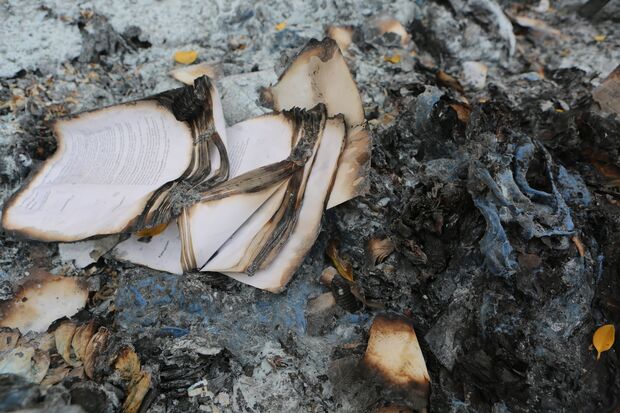
On May 10, 1933 students at several German universities burned books by authors deemed politically suspect. Vast crowds watched enthusiastically, as the writings of Bertolt Brecht, Alfred Döblin, Lion Feuchtwanger, Aldous Huxley, Heinrich Mann, Klaus Mann, Franz Werfel and others were thrown onto bonfires. In Berlin, some 40,000 people gathered to hear Joseph Goebbels deliver a speech condemning Jewish literature and propagating „reliability and commitment to the German spirit“. The book burnings in Germany elicited worldwide protests and triggered counter-demonstrations in many American cities.
Thomas Mann’s grandson Frido Mann will mark the 86th anniversary of the book burning with a reading from the works of Heinrich and Thomas Mann, Oskar Maria Graf, Bertolt Brecht, and Erich Kästner. Frido Mann was born in Monterey, California in 1940. He studied Catholic theology and psychology and worked as a clinical psychologist in Münster, Leipzig, and Prague. Today, Frido Mann resides in Munich as a freelance author. In August 2018, he published “Das Weiße Haus des Exils" (“The White House of Exile”, S. Fischer) about the Thomas Mann House in Los Angeles, where he is currently staying as an Honorary Fellow.
Prof. Mann will be accompanied by violinist Alena Hove (Colbourn School).
Location
By invitation only.
An event hosted by Villa Aurora and Thomas Mann House.
Rechte Räume: Ein architekturpolitischer Reisebericht
Berlin

With: Armen Avanessian, c/o now, Wojciech Czaja, Verena Hartbaum, Tina Hartmann, Gal Kirn, Philipp Krüpe, Andreas Rumpfhuber, Zsuzsanna Stánitz, Matteo Trentini, Anna Yeboah and others
Welcome/Introduction: Anh-Linh Ngo (ARCH+)
Moderation: Stephan Trüby (IGmA)
The rise of the (New) Right has also entailed architectural policy implications. The research project can be considered a contribution to the re-politicization of the architectural discourse. And also as a contribution to the spatialization of political discourse, since "right spaces" are not discussed in the sense of "good" or "bad architecture", but in the sense of political spatial grasp.
The results of the research are collected in the issue Rechte Räume of the journal ARCH+, which was realized in cooperation with the Institut of Grundlagen moderner Architektur. It includes architectural policy observations from a trip through Europe in winter 2018/19 as well as correspondent reports in which selected authors take a close look at the architectural nationalisms of European states (+ Turkey and the US). The evening will accordingly take the form of a travel report. The experts will discuss the different critical situations in Europe in short lectures.
In the run-up to the event, "Right Spaces" in Berlin will be visited and discussed in the form of a city walk organized by the IGmA. More details will be available shortly at archplus.net/features. To register you have to sign up until May 17 at features@archplus.net.
more information and tickets at www.volksbuehne.berlin
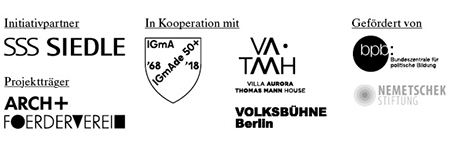
Fireside Chat: Moral Code — Ethics in the Digital Age
Los Angeles


"The primary political and philosophical issue of the next century will be the definition of what we are," futurist Ray Kurzweil wrote just before the onset of the 21st century. Algorithms and autonomously operating machines have already begun to fundamentally change human beings and their surroundings. Meanwhile, social objectives and ethical standards regulating these developments often remain vague. While, historically and culturally, there are fundamental differences defining the discourse on data security and the risks of technological progress, the moral challenges resulting from the use of digital technologies are the same on both sides of the Atlantic.
These digital and technological developments not only affect our moral judgement, but challenge supposed certainties and pose stirring questions. Why not craft better humans? What does a just AI economy look like? Can algorithms be ethical? The conference "Moral Code" aims to propose new ways and platforms to communicate about the moral implications resulting from the use of digital technologies.
Fireside Chat
Luciano Floridi, University of Oxford
Damian Borth, St. Gallen, Thomas Mann Fellow 2019
Moderator: Andrew Culp, California Institute of the Arts
Luciano Floridi is Professor of Philosophy and Ethics of Information at the University of Oxford, Senior Research Fellow at the Oxford Internet Institute, and Fellow of St Cross College, Oxford. Among his recognitions, he has been appointed the Gauss Professor by the Academy of Sciences in Göttingen, and is recipient of the APA's Barwise Prize, the IACAP's Covey Award, and the INSEIT's Weizenbaum Award. He is an AISB and BCS Fellow, Editor in Chief of Philosophy & Technology and of the Synthese Library, and was Chairman of EU Commission's 'Onlife' research group. His most recent books are: The Ethics of Information (OUP, 2013), The Philosophy of Information (OUP, 2011), Information: A Very Short Introduction (OUP, 2010), and The Cambridge Handbook of Information and Computer Ethics (CUP, 2010).
Damian Borth is the Founding Director of the Deep Learning Competence Center at the German Research Institute for Artificial Intelligence (DFKI). After completing his doctorate at the University of Kaiserslautern, he was visiting scholar at Columbia University, postdoctoral researcher at UC Berkeley and the International Computer Science Institute (ICSI). He is a member of several steering committees such as the Volkswagen Foundation and the "AI for Good" Foundation. Borth has received several academic best paper awards, as well as the McKinsey Business Technology Award and NVIDIA AI Award. Since September 2018, Damian Borth is the newly established Chair of Artificial Intelligence and Machine Learning at the University St. Gallen, where his focus is on the establishment of the new IT Department and its curriculum. His primary research interests include Machine Learning, Deep Learning and Artificial Intelligence.
Location
Thomas Mann House
1550 N San Remo Drive
Pacific Palisades, CA 90272
This event is by invitation only.
#moralcode
An event hosted by the Thomas Mann House and UCLA.
![]()


![]()
![]()
Conference: Moral Code — Ethics in the Digital Age
Los Angeles
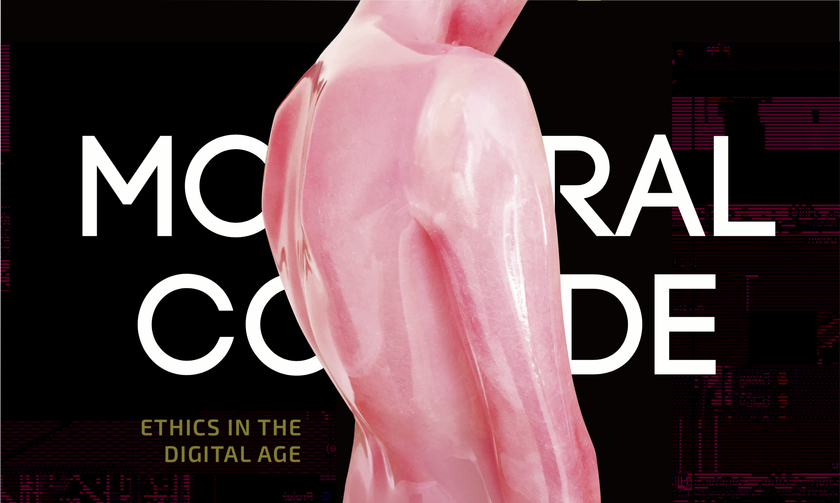
"The primary political and philosophical issue of the next century will be the definition of what we are," futurist Ray Kurzweil wrote just before the onset of the 21st century. Algorithms and autonomously operating machines have already begun to fundamentally change human beings and their surroundings. Meanwhile, social objectives and ethical standards regulating these developments often remain vague. While, historically and culturally, there are fundamental differences defining the discourse on data security and the risks of technological progress, the moral challenges resulting from the use of digital technologies are the same on both sides of the Atlantic.
These digital and technological developments not only affect our moral judgement, but challenge supposed certainties and pose stirring questions. Why not craft better humans? What does a just AI economy look like? Can algorithms be ethical? The conference "Moral Code" aims to propose new ways and platforms to communicate about the moral implications resulting from the use of digital technologies.
Keynote: An Ethical Framework for a Good AI Society
9:15am–10:00am
Luciano Floridi (University of Oxford)
Panel 1: Why not craft better humans?
10:15am–11:15am
Joshua Berson (Fellow Berggruen Institute)
Louisa Clement (Villa Aurora Fellow)
Nader Pouratian (UCLA)
Dong Song (USC)
Moderator: Josh Widera (Thomas Mann House)
Panel 2: What does a just AI economy look like?
11:30am–12:30pm
Damian Borth (Thomas Mann Fellow, University of St. Gallen)
Andrew Culp (CalArts)
Sarah Roberts (UCLA)
Moderator: Nikolai Blaumer (Thomas Mann House)
Panel 3: Can algorithms be ethical?
1:30pm–2:30pm
Safiya Noble (USC/UCLA)
Todd Presner (UCLA)
Ramesh Srinivasan (UCLA)
Moderator: Josh Kun (USC)
RSVP: please email rsvp@vatmh.org
Location
UCLA
Royce Hall 314
9am–2:30pm
#moralcode
Talk: Past Deeds, Political Horizons — Thomas Mann and Post-War Germany
Los Angeles
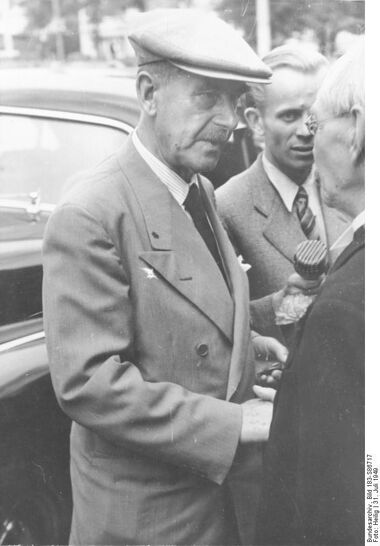
When Thomas Mann embarked on a journey to his former homeland in 1949, Germany seemed intent on drawing a closing line under the legal reconditioning of crimes committed during the Nazi regime. With support from all political parties, the West German Parliament passed a general amnesty favoring tens of thousands of Nazi perpetrators whose crimes were deemed minor. That same year, the East Germany’s provisional parliament enacted a law waiving punishment of former members of the Nazi Party and of the Wehrmacht.
Despite the country's outward attempts to turn over a new leaf, Thomas Mann regarded denazification in Germany as a farce. Four years after the end of the war, he was deeply pessimistic: „Everything that, for a moment, (…) felt a need to hide in 1945 is once again boldly rearing its head.“ At the same time, most Germans were willing to vote for democratic parties. The chance to establish a free constitutional order, however, was limited to the West.
Renowned historian Norbert Frei will focus on Thomas Mann’s literary work in the context of Germany’s social psychology in the late 1940s and early 1950s. Moderation: David Kim (UCLA).
Norbert Frei is Chair for Modern History at the Friedrich-Schiller-Universität Jena and the director of the Jena Center 20th Century History. Professor Frei obtained his doctoral degree from the University of Munich in 1979 and was, among others, Kennedy Fellow at Harvard University (1985/86), a Member of Institute for Advanced Study in Princeton (2008/09) and Theodor Heuss Professor at the New School for Social Research in New York (2010/11). Currently, Norbert Frei is Gerda Henkel Visiting Professor at Stanford University. Most recently, he is co-author of „Zur rechten Zeit. Wider die Rückkehr des Nationalismus“ (At the right time. Against the return of nationalism, Ullstein Berlin 2019).
David D. Kim is Associate Professor of German at the University of California, Los Angeles. He is also affiliated with the UCLA International Institute. His scholarly interests range from the age of Enlightenment to the present day with emphases on postcolonial and translation studies, digital humanities, international human rights, and political and cultural theories.
Location
Thomas Mann House
1550 San Remo Drive
Pacific Palisades, CA 90272
By invitation only.
#LNDI2019: Armen Avanessian & Enemies #58: Infrastructure Europe
Berlin
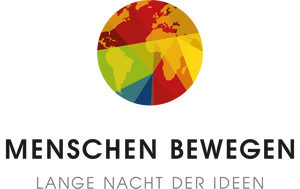
The Federal Foreign Office and its partners invite you to the fourth "Long Night of Ideas" on June 6, 2019. This year's Long Night of Ideas will be focusing on Europe under the heading of "Idea and Ideal - Europe". The idea of Europe will be illuminated in many ways. At prominent locations in Berlin's cultural landscape, from the Volksbühne to the Barenboim Said Akademie to the Silent Green Quartier in Wedding, we present the range of foreign cultural and educational policy. You can find the complete program at menschenbewegen.jetzt/LNDI2019.
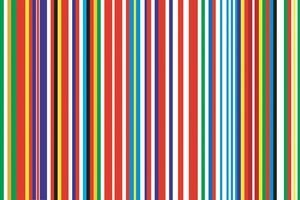
VATMH presents Armen Avanessian & Enemies #58: Infrastructure Europe w/ Metahaven
In Europe, populist voices predict bank crises, national debt crises, economic crises, and refugee crises and are accompanied by the rampant circulation of media images and reductionist symbolism – promising a future based on a national past that probably never existed. What these iconographic reductions and origin fantasies fail to recognize is that Europe is comprised of a complex infrastructure, which penetrates and enables life down to the smallest everyday aspects. Together with the Rotterdam based design collective Metahaven, Thomas Mann Fellow Armen Avanessian aims to answer the following questions: How can Europe’s identity be imagined outside classical symbols such as flags, hymns or monuments? Which kinds of future perspectives for Europe could this vision imply?
Location
Roter Salon in der Volksbühne, Linienstraße 227, 10178 Berlin
Free Admission
R.s.v.p. via infoberlin@vatmh.org.
An event of the Lange Nacht der Ideen 2019. Presented by VATMH in cooperation with the Volksbühne Berlin and Arch +

More Information on Lange Nacht der Ideen at: menschenbewegen.jetzt/lange-nacht-der-ideen-2019
Talk: Raising Fear
Los Angeles
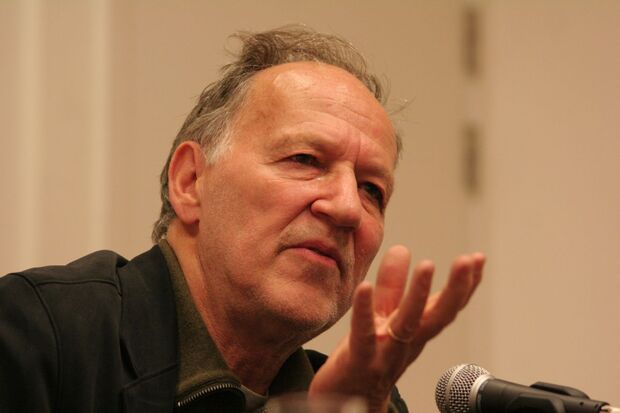
State Minister Monika Gruetters, Werner Herzog, Ulrich Raulff and Steven D. Lavine on Film, Literature and Political Responsibility
"I am fascinated by the idea that our civilization is like a thin layer of ice upon a deep ocean of chaos and darkness”, Werner Herzog uttered in an interview with Paul Cronin. Today, more than fifteen years after the publication of their interview, there are more and more indications that, in the West, that “ice cap” has become perilously ruptured, politically as well as economically.
One of the chapters in “The Magic Mountain” is entitled „Aufsteigende Angst". The characters of Mann’s novels are often stricken by the notion of human culture lingering in a deep crisis. Today, this "Raising Fear" or “Growing Anxiety” seems to gain ground again, making an inherent “angst” a distinct feature of our times.
How can literature and film help to master societal anxieties? What role do they play in our quest for clarity and orientation? And which role does cross-border cultural exchange play?
German Federal Government Commissioner for Culture and the Media Prof. Monika Gruetters in conversation with director Werner Herzog, cultural scientist and President of the Institut für Auslandsbeziehungen (ifa) Ulrich Raulff and Steven D. Lavine, Chairman of the Advisory Board, Thomas Mann House.
Location
Thomas Mann House
1550 San Remo Drive
Pacific Palisades, CA 90272
By Invitation Only
Villa Aurora & Thomas Mann House e. V. is supported by the German Federal Foreign Office and Federal Government Commissioner for Culture and the Media.


“An Appeal to Reason”: Academia's response to current shifts in political culture
Los Angeles
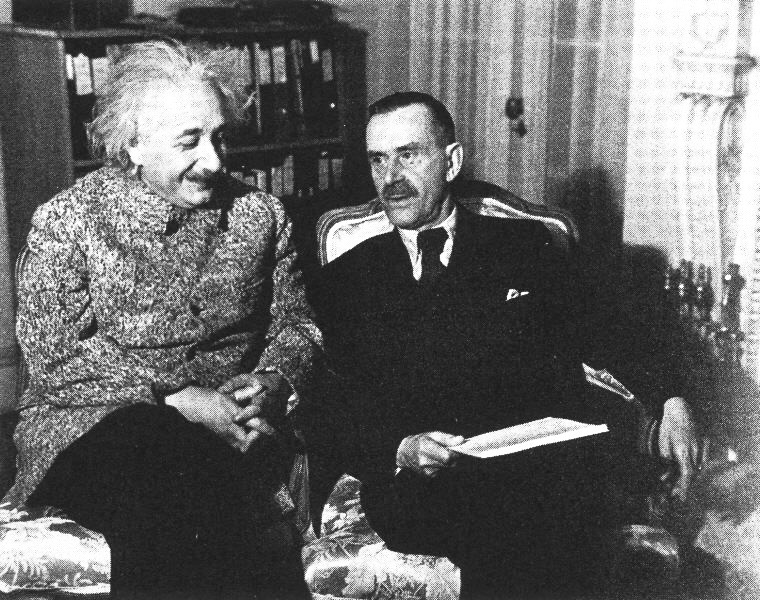
Keynote: Craig Calhoun
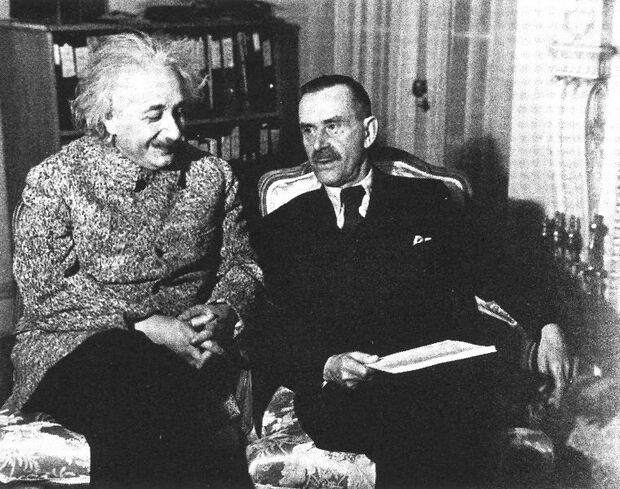
The West has been experiencing a deep transformation of political culture in recent years. Basic models of liberal democracy, such as tolerance and freedom of expression, are under attack. Terms such as 'post-truth politics', 'anti-politics' and 'illiberal democracy' go hand in hand with this process. They denounce the consensus among democrats by undermining or openly attacking their values.
The consequences of this shift for science must be identified as the values of the scientific community itself are at stake. But how clear can science make its stance? And how political can science ultimately be? The shift in political culture is a reason to take a critical look at science's traditional understanding of its role.
Thomas Mann House, German Rectors' Conference (HRK) and German Research Foundation (DFG) organize a two-day round table discussion with a public keynote by Craig Calhoun at UCLA on August 26, 7pm. Thomas Mann's experience of exile was closely linked to the shock of being confronted with a massive shift in political culture at the end of the Weimar Republic. In 1930 he gave a courageous address in Berlin, “Ein Appell an die Vernunft” (“An Appeal to Reason”), appealing for the formation of a common front against the fanaticism of the National Socialists.
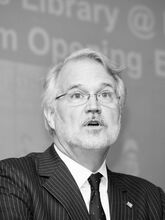
Craig Calhoun is Professor of Social Sciences, Arizona State University. Previously, he was Director of the London School of Economics and Political Science (LSE) and President of the Berggruen Institute. He taught at the University of North Carolina, Columbia University, and New York University where he founded the Institute for Public Knowledge. Professor Calhoun studied social anthropology at USC, Columbia and Manchester and received a DPhil in politics, sociology, and modern social and economic history from Oxford. His books include: Nations Matter (2007), The Roots of Radicalism (2012), and Does Capitalism Have a Future? (2013).
Location
UCLA, Kerckhoff Hall – Charles E. Young Grand Salon
308 Westwood Plaza, Los Angeles
RSVPs
This Event is by RSVP only. To RSVP please click here.
This event is organized in cooperation with UCLA, the German Research Foundation (DFG) and the German Rectors‘ Conference (HRK).
The German Research Foundation (Deutsche Forschungsgemeinschaft, DFG) is the central, independent and self-governing organization for science and research in Germany. It serves all branches of science and the humanities by funding research projects at universities and other research institutions. Jointly financed by the federal government and the 16 states, its mission is to promote scientific excellence by selecting the best research projects on a competitive basis, and facilitating national and international collaboration among researchers.
The German Rectors‘ Conference (Hochschulrektorenkonferenz / HRK) is the association of universities in Germany. The HRK is an independent organisation, representing all types of higher education institutions. Around 94 per cent of all students in Germany are enrolled at its member universities. Hence, the HRK is the voice of German universities with respect to policymakers and the public.
Villa Aurora & Thomas Mann House e. V. is supported by the German Federal Foreign Office and Federal Government Commissioner for Culture and the Media.


Global Voices: The Housing Crisis from Skid Row to Tokyo
Los Angeles

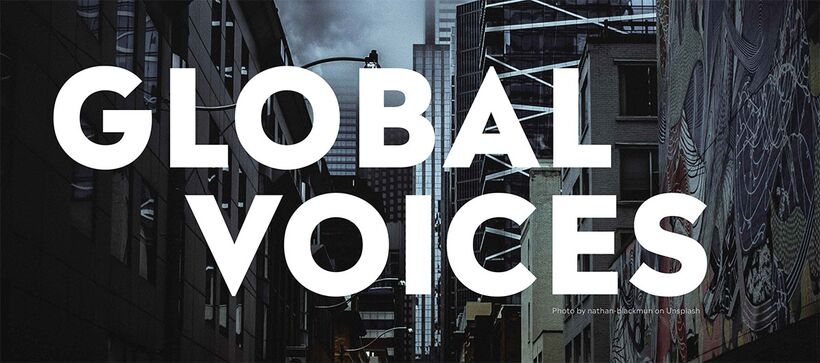
From Los Angeles, to Munich, Berlin and Tokyo – the current housing crisis is a global development. In the age of low interest rates, housing has become a worldwide investment strategy. The effects of this development are manifold, but frequently disastrous for lower-income, minority communities. The result: affordable housing is being dismantled, not just in the United States, but internationally. However, while commercial upgrading, displacements and evictions are becoming a matter of routine, social justice movements are organizing on a transnational level to combat urban inequality.
“Global Voices: The Housing Crisis from Skid Row to Tokyo” will provide a forum for activists, artists and scholars from four different countries to discuss and present the roots of the current housing crisis, the role of race and ethnicity for housing and the organizing strategies for the human right to housing.
Participants:
Leilani Farha, United Nations Special Rapporteur on Adequate Housing
Angelika Levi, Artist, Villa Aurora Fellow
Lisa Riedner, Anthropologist, Thomas Mann House Fellow
J. Walt Senterfitt, Union de Vecinos / Los Angeles Tenants Union
Pete White, Los Angeles Community Action Network
Location
Los Angeles Community Action Network
838 E 6th Street
Los Angeles, CA 90021
To RSVP please fill out this form: https://forms.gle/FmRtFeZrMBdgujuG6
This event is a cooperation of Villa Aurora & Thomas Mann House and the Los Angeles Community Action Network.

Villa Aurora & Thomas Mann House e. V. is supported by the German Federal Foreign Office and Federal Government Commissioner for Culture and the Media.


Lecture Tour Frido Mann: "Democracy Will Win" — New York City
New York City
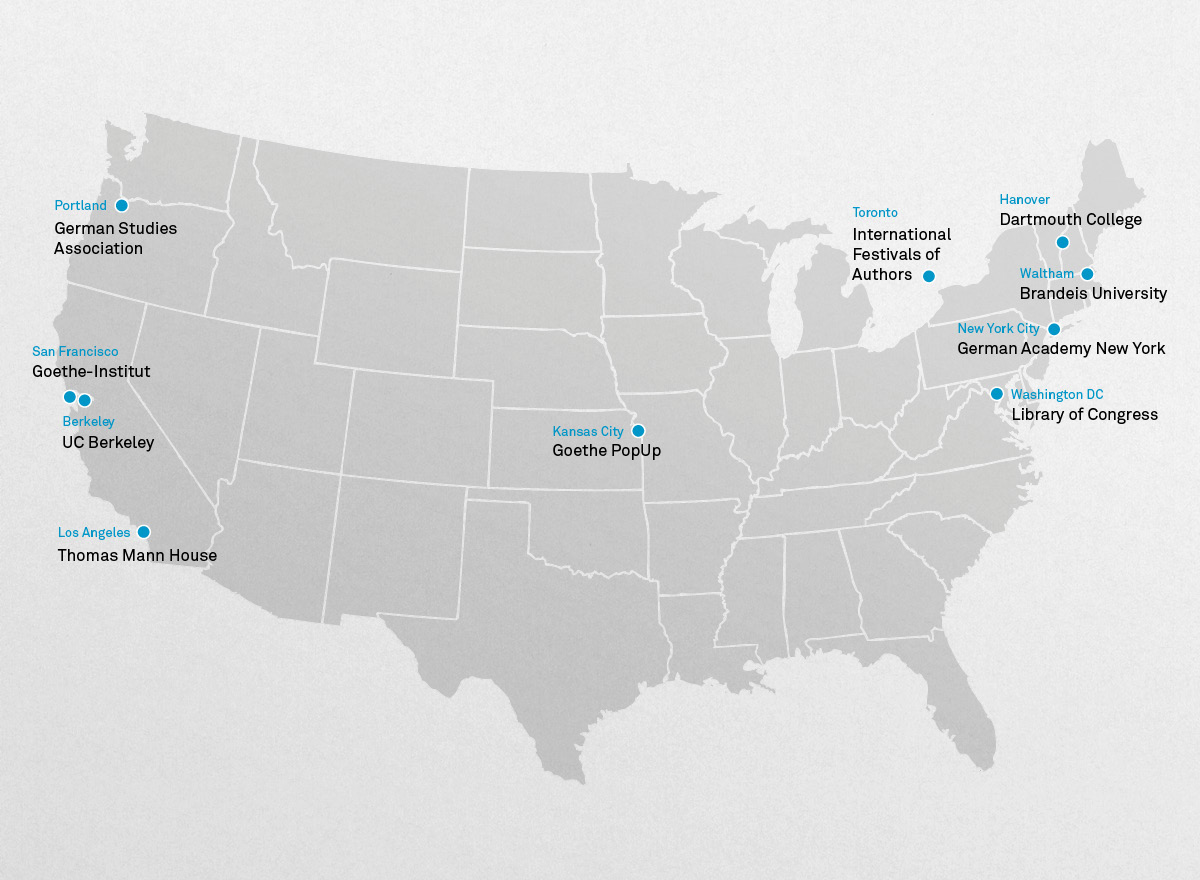
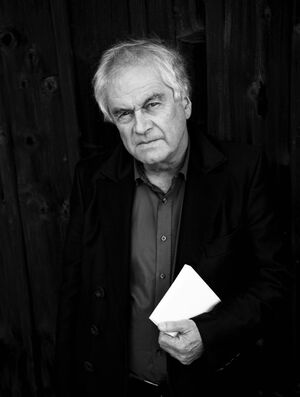
Born in the United States, Frido Mann sensed the democratic creed of his parents and grandparents from childhood on. They had managed to leave Europe for the U.S. before the outbreak of WWII. During his extended lecture tours, Thomas Mann, Frido's grandfather, addressed his American audiences with his speech “The Coming Victory of Democracy” warning of the dangers of fascism for a liberal democracy: “The social renewal of democracy is the presupposition and the guarantee of its victory.”
Following in his grandfather's tracks, Frido Mann is going to give lectures in numerous places in the United States and Canada. He will address the current crisis in the American and European democracies and the need for their restoration, on the basis of transatlantic dialogue.
The event will be moderated by Annie Pfeiffer (Columbia University).
Frido Mann was born in 1940 in Monterey/California. He studied music, catholic theology, and psychology and worked as a clinical psychologist in in Münster, Leipzig and Prague. Frido Mann was the executive director of the Institute for Medical Psychology at the University of Münster. He now lives in Munich and works as a freelance writer. His recent publications are "An die Musik. Ein autobiographischer Essay" (Ode to Music: An Autobiographical Essay) and — together with Christine Mann — "Es werde Licht. Die Einheit von Geist und Materie in der Quantenphysik" (Let there be Light: The Union of Spirit and Matter in Quantum Physics). He is 2019 Honorary Fellow at Thomas Mann House. In August 2018, S. Fischer published "Das Weiße Haus des Exils" (The White House of Exile) about the Thomas Mann House in Los Angeles.
Location
German Academy New York
1014 5th Avenue
New York, NY 10028
September 20, 2019
6:00PM
To register for the event, please fill out the following form: https://form.jotform.com/92236227140146
This event is part of a Lecture Tour of Professor Mann. It is made possible by the support of the Alfried Krupp von Bohlen und Halbach-Stiftung.
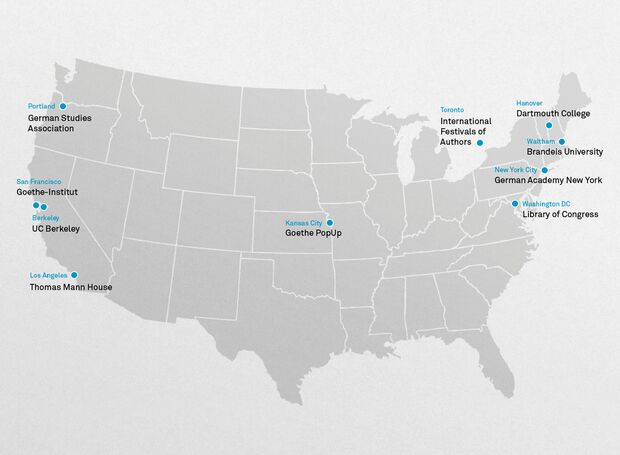

- September 20: New York City
- September 23 and 24: Brandeis University
- September 26: Denver
- September 27: Kansas City
- October 1: Washington DC
- October 4: Portland
- October 8: Los Angeles
- October 9: Long Beach
- October 10: Berkeley
- October 12: San Francisco
- October 15–25: Dartmouth College
- October 29: Toronto
Screening and Discussion: "Cherry Blossoms"
Los Angeles
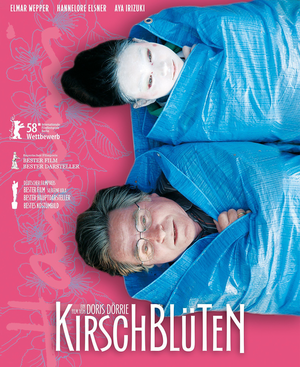
The Thomas Mann House will screen "Cherry Blossoms" (Kirschblüten – Hanami) by Doris Dörrie, from 2008. Rudi and Trudi have been together for 30 years. When Trudi dies suddenly, Rudi flies to Japan to their son Karl, to see the things that were important to Trudi and which they did not have time to experience together: their son in Japan, the legendary japanese cherry blossoms, Fujiyama and Butoh dance, once an obsession of Trudi.
The screening will be followed by a presentation by Thomas Mann Fellow Stefan Keppler-Tasaki (University of Tokyo) in conversation with Professor of Japanese Kyoko Kurita and Associat Professor of German and Russian Friederike von Schwerin-High (both Pomona College).
Participants:
Stefan Keppler-Tasaki, Thomas Mann Fellow / University of Tokyo
Friederike von Schwerin-High, Pomona College
Kyoko Kurita, Pomona College
Location
Thomas Mann House
1550 N San Remo Drive
Pacific Palisades, CA 90272
Participation by invitation only.
This event is a cooperation of Villa Aurora & Thomas Mann House and Pomona College.

Villa Aurora & Thomas Mann House e. V. is supported by the German Federal Foreign Office and Federal Government Commissioner for Culture and the Media.


Lecture Tour Frido Mann: "The White House of Exile" — Brandeis University
Waltham, MA


Born in the United States, Frido Mann sensed the democratic creed of his parents and grandparents from childhood on. They had managed to leave Europe for the U.S. before the outbreak of WWII. During his extended lecture tours, Thomas Mann, Frido's grandfather, addressed his American audiences with his speech “The Coming Victory of Democracy” warning of the dangers of fascism for a liberal democracy: “The social renewal of democracy is the presupposition and the guarantee of its victory.”
Following in his grandfather's tracks, Frido Mann is going to give lectures in numerous places in the United States and Canada. He will address the current crisis in the American and European democracies and the need for their restoration, on the basis of transatlantic dialogue.
The luncheon talk at Brandeis University will be moderated by Prof. Stephen Dowden.
Frido Mann was born in 1940 in Monterey/California. He studied music, catholic theology, and psychology and worked as a clinical psychologist in in Münster, Leipzig and Prague. Frido Mann was the executive director of the Institute for Medical Psychology at the University of Münster. He now lives in Munich and works as a freelance writer. His recent publications are "An die Musik. Ein autobiographischer Essay" (Ode to Music: An Autobiographical Essay) and — together with Christine Mann — "Es werde Licht. Die Einheit von Geist und Materie in der Quantenphysik" (Let there be Light: The Union of Spirit and Matter in Quantum Physics). He is 2019 Honorary Fellow at Thomas Mann House. In August 2018, S. Fischer published "Das Weiße Haus des Exils" (The White House of Exile) about the Thomas Mann House in Los Angeles.
Location
Brandeis University
415 South Street, Waltham, MA 02454
Faculty Club Lounge
September 24, 2019
12:00PM
This event is part of a Lecture Tour of Professor Mann. It is made possible by the support of the Alfried Krupp von Bohlen und Halbach-Stiftung.


- September 20: New York City
- September 23 and 24: Brandeis University
- September 26: Denver
- September 27: Kansas City
- October 1: Washington DC
- October 4: Portland
- October 8: Los Angeles
- October 9: Long Beach
- October 10: Berkeley
- October 12: San Francisco
- October 15–25: Dartmouth College
- October 29: Toronto
Lecture Tour Frido Mann: "Democracy Will Win" — Denver
Denver


Born in the United States, Frido Mann sensed the democratic creed of his parents and grandparents from childhood on. They had managed to leave Europe for the U.S. before the outbreak of WWII. During his extended lecture tours, Thomas Mann, Frido's grandfather, addressed his American audiences with his speech “The Coming Victory of Democracy” warning of the dangers of fascism for a liberal democracy: “The social renewal of democracy is the presupposition and the guarantee of its victory.”
Following in his grandfather's tracks, Frido Mann is going to give lectures in numerous places in the United States and Canada. He will address the current crisis in the American and European democracies and the need for their restoration, on the basis of transatlantic dialogue.
Frido Mann was born in 1940 in Monterey/California. He studied music, catholic theology, and psychology and worked as a clinical psychologist in in Münster, Leipzig and Prague. Frido Mann was the executive director of the Institute for Medical Psychology at the University of Münster. He now lives in Munich and works as a freelance writer. His recent publications are "An die Musik. Ein autobiographischer Essay" (Ode to Music: An Autobiographical Essay) and — together with Christine Mann — "Es werde Licht. Die Einheit von Geist und Materie in der Quantenphysik" (Let there be Light: The Union of Spirit and Matter in Quantum Physics). He is 2019 Honorary Fellow at Thomas Mann House. In August 2018, S. Fischer published "Das Weiße Haus des Exils" (The White House of Exile) about the Thomas Mann House in Los Angeles.
Location
This event is by invitation only
September 26, 2019
This event is part of a Lecture Tour of Professor Mann. It is made possible by the support of the Alfried Krupp von Bohlen und Halbach-Stiftung.


- September 20: New York City
- September 23 and 24: Brandeis University
- September 26: Denver
- September 27: Kansas City
- October 1: Washington DC
- October 4: Portland
- October 8: Los Angeles
- October 9: Long Beach
- October 10: Berkeley
- October 12: San Francisco
- October 15–25: Dartmouth College
- October 29: Toronto
Lecture Tour Frido Mann: "Democracy Will Win" — Kansas City
Kansas City


Born in the United States, Frido Mann sensed the democratic creed of his parents and grandparents from childhood on. They had managed to leave Europe for the U.S. before the outbreak of WWII. During his extended lecture tours, Thomas Mann, Frido's grandfather, addressed his American audiences with his speech “The Coming Victory of Democracy” warning of the dangers of fascism for a liberal democracy: “The social renewal of democracy is the presupposition and the guarantee of its victory.”
Following in his grandfather's tracks, Frido Mann is going to give lectures in numerous places in the United States and Canada. He will address the current crisis in the American and European democracies and the need for their restoration, on the basis of transatlantic dialogue.
Frido Mann was born in 1940 in Monterey/California. He studied music, catholic theology, and psychology and worked as a clinical psychologist in in Münster, Leipzig and Prague. Frido Mann was the executive director of the Institute for Medical Psychology at the University of Münster. He now lives in Munich and works as a freelance writer. His recent publications are "An die Musik. Ein autobiographischer Essay" (Ode to Music: An Autobiographical Essay) and — together with Christine Mann — "Es werde Licht. Die Einheit von Geist und Materie in der Quantenphysik" (Let there be Light: The Union of Spirit and Matter in Quantum Physics). He is 2019 Honorary Fellow at Thomas Mann House. In August 2018, S. Fischer published "Das Weiße Haus des Exils" (The White House of Exile) about the Thomas Mann House in Los Angeles.
Location
Plaza Library Branch: Lower Level
Truman Forum Auditorium
4801 Main Street
Kansas City, MO 64112
September 27, 2019
Please RSVP at info-kansascity@goethe.de
This event is part of a Lecture Tour of Professor Mann. It is made possible by the support of the Alfried Krupp von Bohlen und Halbach-Stiftung.


- September 20: New York City
- September 23 and 24: Brandeis University
- September 26: Denver
- September 27: Kansas City
- October 1: Washington DC
- October 4: Portland
- October 8: Los Angeles
- October 9: Long Beach
- October 10: Berkeley
- October 12: San Francisco
- October 15–25: Dartmouth College
- October 29: Toronto
Discussion with Armen Avanessian: "Where Do We Go From Here? A Cross-Continental Odyssey to the Future"
Detroit

re:publica is Europe’s largest internet and digital society conference, taking place annually in Berlin. re:publica 2019 hosted 1135 speakers from 52 countries, and received more than 25 000 participants over the course of the three day event. re:publica addresses all of the ways digitization is changing societies, from its impact on politics, media, social services, to the ways its changing arts, culture, business, and science. Since October 2018, re:publica has joined the year-long Wunderbar Together campaign and is on Sequencer Tour through the USA. With previous stops in Los Angeles, Austin and New York, the tour is now heading to Detroit on September 28th, 2019.
Thomas Mann House Fellow Armen Avanessian will be part of the discussion "Where Do We Go From Here? A Cross-Continental Odyssey to the Future" with Ingrid LaFleur, Social Impact Advisor at Detroit Blockchain Center and Will Senyo, Co-Founder and CEO Impact Hub Accra.
Villa Aurora & Thomas Mann House e. V. is supported by the German Federal Foreign Office and Federal Government Commissioner for Culture and the Media.


Armen Avanessian: "Future Metaphysics"
Detroit

Part of the Deroy Lecture Series.
Lecture: Armen Avanessian—Future Metaphysics.
Armen Avanessian studied philosophy and political science in Vienna and Paris. After completing his dissertation in literature, he worked at the Free University Berlin from 2007–2014. He has previously been a Visiting Fellow in the German Department at Columbia University and the German Department at Yale University as well as Visiting Professor at various art academies in Europe and the US. In Berlin, Avanessian is the editor at large at Merve Verlag and in charge of the theory program at the internationally acclaimed theatre Volksbühne. He is a co-founder of the bilingual research platform Spekulative Poetik (www.spekulative-poetik.de), conducting a series of events, translations and publications. His work is translated into various languages. Forthcoming in German are two monographs, One plus One and I –I (Merve, 2019), both written in collaboration with Anke Hennig. Forthcoming in English is Future Metaphysics (Polity, 2019).
Location
Wayne State University
42 W Warren Ave
Detroit, MI 48202
English Department Conference Room
10302 Maccabees
Monday, September 30, 2019 - 3:00pm
An event in cooperation with Wayne State University.

Lecture Tour Frido Mann: "Democracy Will Win" — Washington D.C.
Washington DC


Born in the United States, Frido Mann sensed the democratic creed of his parents and grandparents from childhood on. They had managed to leave Europe for the U.S. before the outbreak of WWII. During his extended lecture tours, Thomas Mann, Frido's grandfather, addressed his American audiences with his speech “The Coming Victory of Democracy” warning of the dangers of fascism for a liberal democracy: “The social renewal of democracy is the presupposition and the guarantee of its victory.”
Following in his grandfather's tracks, Frido Mann is going to give lectures in numerous places in the United States and Canada. He will address the current crisis in the American and European democracies and the need for their restoration, on the basis of transatlantic dialogue.
Frido Mann was born in 1940 in Monterey/California. He studied music, catholic theology, and psychology and worked as a clinical psychologist in in Münster, Leipzig and Prague. Frido Mann was the executive director of the Institute for Medical Psychology at the University of Münster. He now lives in Munich and works as a freelance writer. His recent publications are "An die Musik. Ein autobiographischer Essay" (Ode to Music: An Autobiographical Essay) and — together with Christine Mann — "Es werde Licht. Die Einheit von Geist und Materie in der Quantenphysik" (Let there be Light: The Union of Spirit and Matter in Quantum Physics). He is 2019 Honorary Fellow at Thomas Mann House. In August 2018, S. Fischer published "Das Weiße Haus des Exils" (The White House of Exile) about the Thomas Mann House in Los Angeles.
Location
Library of Congress
Washington D.C.
October 1, 2019
This event is part of a Lecture Tour of Professor Mann. It is made possible by the support of the Alfried Krupp von Bohlen und Halbach-Stiftung.


- September 20: New York City
- September 23 and 24: Brandeis University
- September 26: Denver
- September 27: Kansas City
- October 1: Washington DC
- October 4: Portland
- October 8: Los Angeles
- October 9: Long Beach
- October 10: Berkeley
- October 12: San Francisco
- October 15–25: Dartmouth College
- October 29: Toronto
"Asynchronocities": Workshop with Armen Avanessian
New York

The complexity of today’s social organization, in which algorithms and big data supersede the primacy of human agency and experience, obliterated our traditional notion of the present as the structuring condition of time. Current speculative concepts such as derivative trading, financial speculation, as well as preemptive politics and personalities suggest that the present is already predetermined by the future. But what does it mean to live and think in a speculative present, ethically but also academically, let’s say as a literary theorist? And how does a non-linear conception of time affect our present-day semantics and politics? Exploring the implications of an asynchronous temporality towards a modern understanding of poetics, ontology and metaphysics, in this open seminar, excerpts from Armen Avanessian’s works on temporality will be discussed.
Armen Avanessian studied philosophy and political science in Vienna and Paris. After completing his dissertation in literature, he worked at the Free University Berlin from 2007–2014. He has previously been a Visiting Fellow in the German Department at Columbia University and the German Department at Yale University as well as Visiting Professor at various art academies in Europe and the US. In Berlin, Avanessian is the editor at large at Merve Verlag and in charge of the theory program at the internationally acclaimed theatre Volksbühne. He is a co-founder of the bilingual research platform Spekulative Poetik (www.spekulative-poetik.de), conducting a series of events, translations and publications.
Location
NYU German Department
19 University Place
New York, NY 10022
1st floor, Great Room
Wednesday, October 2, 2019 - 5:00pm
To RSVP, please email asynchronocities.nyu@gmail.com
Lecture Tour Frido Mann: "Democracy Will Win" — Portland
Portland


Born in the United States, Frido Mann sensed the democratic creed of his parents and grandparents from childhood on. They had managed to leave Europe for the U.S. before the outbreak of WWII. During his extended lecture tours, Thomas Mann, Frido's grandfather, addressed his American audiences with his speech “The Coming Victory of Democracy” warning of the dangers of fascism for a liberal democracy: “The social renewal of democracy is the presupposition and the guarantee of its victory.”
Following in his grandfather's tracks, Frido Mann is going to give lectures in numerous places in the United States and Canada. He will address the current crisis in the American and European democracies and the need for their restoration, on the basis of transatlantic dialogue.
Frido Mann was born in 1940 in Monterey/California. He studied music, catholic theology, and psychology and worked as a clinical psychologist in in Münster, Leipzig and Prague. Frido Mann was the executive director of the Institute for Medical Psychology at the University of Münster. He now lives in Munich and works as a freelance writer. His recent publications are "An die Musik. Ein autobiographischer Essay" (Ode to Music: An Autobiographical Essay) and — together with Christine Mann — "Es werde Licht. Die Einheit von Geist und Materie in der Quantenphysik" (Let there be Light: The Union of Spirit and Matter in Quantum Physics). He is 2019 Honorary Fellow at Thomas Mann House. In August 2018, S. Fischer published "Das Weiße Haus des Exils" (The White House of Exile) about the Thomas Mann House in Los Angeles.
Location
German Studies Association Annual Conference
Portland
October 4, 2019
This event is part of a Lecture Tour of Professor Mann. It is made possible by the support of the Alfried Krupp von Bohlen und Halbach-Stiftung.


- September 20: New York City
- September 23 and 24: Brandeis University
- September 26: Denver
- September 27: Kansas City
- October 1: Washington DC
- October 4: Portland
- October 8: Los Angeles
- October 9: Long Beach
- October 10: Berkeley
- October 12: San Francisco
- October 15–25: Dartmouth College
- October 29: Toronto
Seminar with Stefan Keppler-Tasaki: “How Goethe became Japanese”
Portland

The annual conferences of the German Studies Association bring together over one thousand scholars in the areas of German history, literature, culture, and politics. Thomas Mann House Fellow Stefan Keppler-Tasaki will present and discuss his book “How Goethe became Japanese: Scenes of Transnational Contact with a National Purpose” at the 43rd German Studies Association conference in Portland, Oregon.
In 1818, Goethe wrote to his prince, Duke Carl August: “Japan is anywhere that one knows how to create it.” This meant the creation of gardening conditions that would be agreeable to the Japanese plants, which Goethe successfully grew in Weimar. Nearly everything what Europeans believed to know about Japan in the days of Goethe changed fundamentally through the Japanese nation building process during the late 19th and early 20th century. In this process, Goethe’s saying became true also insofar as Japan proved to be ‘created’ or ‘re-created,’ especially in Japan itself. The ‘know-how’ for this creation came not the least from Goethe’s life and work. Japanese intellectuals from Mori Ōgai, a founding figure of modern Japan, to Osamu Tezuka, the very creator of the Manga genre, drew intensively from Goethe to establish somewhat a Japanese identity—for national self-esteem as well as for harsh criticism on Japan. Given the prominent suicide motifs in Werther and Faust, Goethe became a kind of national author particularly to the so called ‘suicide nation’ Japan. Death testimonies of Japanese individuals from the 1890s until the peak of Kamikaze tactics in 1944/45 provide evidence of that.
In the meantime, the close conjunction of Goethe and Japan was facilitated by European intellectuals such as Thomas Mann and Gottfried Benn, whose 1932 essays on Goethe refer to Japan (Mann) resp. to Buddhism (Benn). Mann, whose brother-in-law lived in Japan since 1931, remodeled Goethe in his essay To the Japanese Youth, a Goethe Study (An die japanische Jugend. Eine Goethe-Studie) according to the image of modern Japan. Benn in his essay Goethe and the Natural Sciences (Goethe und die Naturwissenschaften) commented on the frequent reclamation of Goethe’s world view, particularly of his late poetry, for Buddhist thought. Both essays were textbook pieces in the national colleges of Japan in the 1930s and read by the very youth which was made sacrifice their live in the Pacific War.
The above-mentioned scenes of transnational contact with a national purpose deserve a closer look in the framework of Asian German Studies.
Location:
43rd Annual German Studies Association, October 3-6, 2019
Portland, Oregon
Accredited members of GSA only.
Villa Aurora & Thomas Mann House e. V. is supported by the German Federal Foreign Office and Federal Government Commissioner for Culture and the Media.


Michael Kleeberg: Heimat—A German Mythos: Literature, Politics, and Cultural Plurality in Times of Migration and Nationalism
Los Angeles
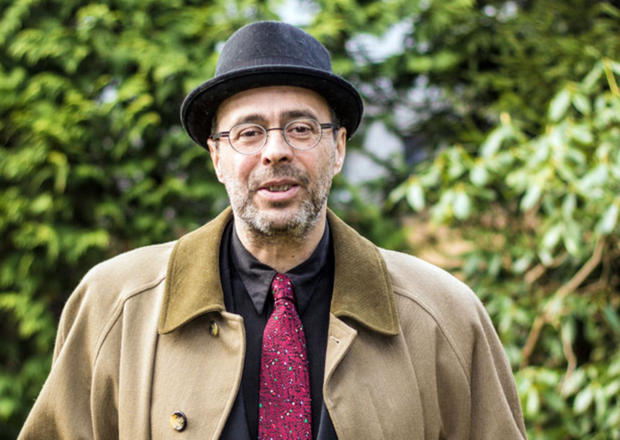

The award-winning German writer and translator Michael Kleeberg will reflect on his father's childhood experiences in postwar Frankfurt to ruminate on the myth of belonging in times of migration. How do we cope with the experience of abandoning our home?
Michael Kleeberg, born 1959 in Stuttgart, studied political sciences and history. After Rome and Amsterdam, he lived in Paris from 1986 to 1999. He now works as an author and translator in Berlin. He has been awarded multiple times for his work, including as Mainzer Stadtschreiber in 2008. His novel "Das Amerikanische Hospital", published 2010, was nominated for the German Book Prize and received the Evangelical Book Prize in 2011. His novel "Vaterjahre" was awarded the Friedrich Hölderlin Prize of the city of Bad Homburg. In 2016, Michael Kleeberg received the Literature Prize of the Konrad Adenauer Foundation for his life's work.
Location
UCLA
Royce Hall 236
October 7, 2019
12:00 PM
For more information, please contact Professor David D. Kim at dkim@humnet.ucla.edu.
Villa Aurora & Thomas Mann House e. V. is supported by the German Federal Foreign Office and Federal Government Commissioner for Culture and the Media.


Goethe’s Homecoming: Thomas Mann’s complete works of Goethe donated to the Thomas Mann House
Los Angeles
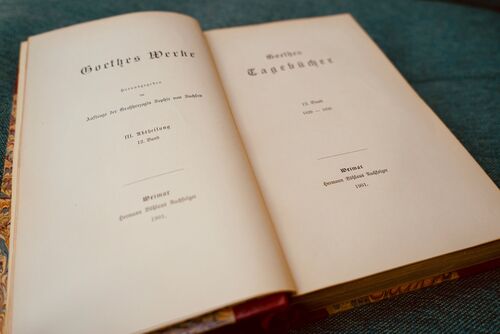
No other author had as strong an impact on Thomas Mann and his works as Johann Wolfgang von Goethe. For his 200th birthday anniversary, Thomas Mann wrote: “He was more than a poet: a sage, a ruler, the last representative and intellectual arbiter of Europe, a grand human.” Thomas Mann interprets Goethe as a democratic pragmatist, as a supporter of a liberal America, whose victory of justice and freedom Goethe called "a relief for humanity."
The Thomas Mann House will accept, in the presence of German Consul General of Los Angeles Stefan Schneider, Thomas Mann’s Weimar edition of Goethe’s works. The volumes return to their original location in Thomas Mann’s former house and are donated by Frederic C. and Sally Tubach. Michaela Ullmann (University of Southern California) will engage Prof. Frederic Tubach (UC Berkeley) in conversation with author and psychologist Prof. Frido Mann and Thomas Mann Fellow Stefan Keppler-Tasaki (University of Tokyo).
Location:
Thomas Mann House
1550 N San Remo Drive
Pacific Palisades, CA 90272
By invitation only.
Villa Aurora & Thomas Mann House e. V. is supported by the German Federal Foreign Office and Federal Government Commissioner for Culture and the Media.


Lecture Tour Frido Mann: "Democracy Will Win" — Long Beach
Long Beach


Born in the United States, Frido Mann sensed the democratic creed of his parents and grandparents from childhood on. They had managed to leave Europe for the U.S. before the outbreak of WWII. During his extended lecture tours, Thomas Mann, Frido's grandfather, addressed his American audiences with his speech “The Coming Victory of Democracy” warning of the dangers of fascism for a liberal democracy: “The social renewal of democracy is the presupposition and the guarantee of its victory.”
Following in his grandfather's tracks, Frido Mann is going to give lectures in numerous places in the United States and Canada. He will address the current crisis in the American and European democracies and the need for their restoration, on the basis of transatlantic dialogue.
Frido Mann was born in 1940 in Monterey/California. He studied music, catholic theology, and psychology and worked as a clinical psychologist in in Münster, Leipzig and Prague. Frido Mann was the executive director of the Institute for Medical Psychology at the University of Münster. He now lives in Munich and works as a freelance writer. His recent publications are "An die Musik. Ein autobiographischer Essay" (Ode to Music: An Autobiographical Essay) and — together with Christine Mann — "Es werde Licht. Die Einheit von Geist und Materie in der Quantenphysik" (Let there be Light: The Union of Spirit and Matter in Quantum Physics). He is 2019 Honorary Fellow at Thomas Mann House. In August 2018, S. Fischer published "Das Weiße Haus des Exils" (The White House of Exile) about the Thomas Mann House in Los Angeles.
Location
California State University, Long Beach
Long Beach, CA
October 9, 2019
This event is part of a Lecture Tour of Professor Mann. It is made possible by the support of the Alfried Krupp von Bohlen und Halbach-Stiftung.


- September 20: New York City
- September 23 and 24: Brandeis University
- September 26: Denver
- September 27: Kansas City
- October 1: Washington DC
- October 4: Portland
- October 8: Los Angeles
- October 9: Long Beach
- October 10: Berkeley
- October 12: San Francisco
- October 15–25: Dartmouth College
- October 29: Toronto
Lecture Tour Frido Mann: "Democracy Will Win" — Berkeley
Berkeley


Born in the United States, Frido Mann sensed the democratic creed of his parents and grandparents from childhood on. They had managed to leave Europe for the U.S. before the outbreak of WWII. During his extended lecture tours, Thomas Mann, Frido's grandfather, addressed his American audiences with his speech “The Coming Victory of Democracy” warning of the dangers of fascism for a liberal democracy: “The social renewal of democracy is the presupposition and the guarantee of its victory.”
Following in his grandfather's tracks, Frido Mann is going to give lectures in numerous places in the United States and Canada. He will address the current crisis in the American and European democracies and the need for their restoration, on the basis of transatlantic dialogue.
Frido Mann was born in 1940 in Monterey/California. He studied music, catholic theology, and psychology and worked as a clinical psychologist in in Münster, Leipzig and Prague. Frido Mann was the executive director of the Institute for Medical Psychology at the University of Münster. He now lives in Munich and works as a freelance writer. His recent publications are "An die Musik. Ein autobiographischer Essay" (Ode to Music: An Autobiographical Essay) and — together with Christine Mann — "Es werde Licht. Die Einheit von Geist und Materie in der Quantenphysik" (Let there be Light: The Union of Spirit and Matter in Quantum Physics). He is 2019 Honorary Fellow at Thomas Mann House. In August 2018, S. Fischer published "Das Weiße Haus des Exils" (The White House of Exile) about the Thomas Mann House in Los Angeles.
Location
University of California, Berkeley
Institute of European Studies
Berkeley, CA
October 10, 2019
This event is part of a Lecture Tour of Professor Mann. It is made possible by the support of the Alfried Krupp von Bohlen und Halbach-Stiftung.


- September 20: New York City
- September 23 and 24: Brandeis University
- September 26: Denver
- September 27: Kansas City
- October 1: Washington DC
- October 4: Portland
- October 8: Los Angeles
- October 9: Long Beach
- October 10: Berkeley
- October 12: San Francisco
- October 15–25: Dartmouth College
- October 29: Toronto
Lecture Tour Frido Mann: "Democracy Will Win" — San Francisco
San Francisco


Born in the United States, Frido Mann sensed the democratic creed of his parents and grandparents from childhood on. They had managed to leave Europe for the U.S. before the outbreak of WWII. During his extended lecture tours, Thomas Mann, Frido's grandfather, addressed his American audiences with his speech “The Coming Victory of Democracy” warning of the dangers of fascism for a liberal democracy: “The social renewal of democracy is the presupposition and the guarantee of its victory.”
Following in his grandfather's tracks, Frido Mann is going to give lectures in numerous places in the United States and Canada. He will address the current crisis in the American and European democracies and the need for their restoration, on the basis of transatlantic dialogue.
Frido Mann was born in 1940 in Monterey/California. He studied music, catholic theology, and psychology and worked as a clinical psychologist in in Münster, Leipzig and Prague. Frido Mann was the executive director of the Institute for Medical Psychology at the University of Münster. He now lives in Munich and works as a freelance writer. His recent publications are "An die Musik. Ein autobiographischer Essay" (Ode to Music: An Autobiographical Essay) and — together with Christine Mann — "Es werde Licht. Die Einheit von Geist und Materie in der Quantenphysik" (Let there be Light: The Union of Spirit and Matter in Quantum Physics). He is 2019 Honorary Fellow at Thomas Mann House. In August 2018, S. Fischer published "Das Weiße Haus des Exils" (The White House of Exile) about the Thomas Mann House in Los Angeles.
Location
Litquake Festival
San Francisco
October 12, 2019
This event is part of a Lecture Tour of Professor Mann. It is made possible by the support of the Alfried Krupp von Bohlen und Halbach-Stiftung.


- September 20: New York City
- September 23 and 24: Brandeis University
- September 26: Denver
- September 27: Kansas City
- October 1: Washington DC
- October 4: Portland
- October 8: Los Angeles
- October 9: Long Beach
- October 10: Berkeley
- October 12: San Francisco
- October 15–25: Dartmouth College
- October 29: Toronto
Worlds of Homelessness
Los Angeles


In Los Angeles, where the phrase „Homelessness is just a paycheck away“ is all too well known, the divide between the „haves and have-nots“ is ever-present. While the city is best known for its Hollywood image, it is estimated that more than 60,000 individuals experience homelessness in LA County on any given night. Among these are also students and working-class individuals, who have to live in their cars because they cannot afford to pay rent.
Worlds of Homelessness is a project of the Goethe-Institut that offers an interdisciplinary engagement with the issue of homelessness and its many related themes such as the gap between rich and poor, participation, inequality, gentrification, racism, and migration. Worlds of Homelessness seeks to bring together local and international artists, architects, scholars, and others in an effort to create a platform to share ideas, thoughts and to present their work, as well as examining different ways of engagement with the many questions related to the topic.
The project is developed in cooperation with the Los Angeles Poverty Department, who, for decades has worked with Skid Row artists, the Thomas Mann House, the architecture and design school SCI-Arc, the Institute on Inequality and Democracy at UCLA Luskin as well as other partners.
The event series including discussions, music performances, and film screenings takes place from October 22 – 27, 2019 in Los Angeles at the Skid Row Museum, Navel, and SCI-Arc, and culminates with the Festival for All Skid Row Artists from October 26. – 27. 2019 in Skid Row.
PROGRAM
Framing the Issue: Homelessness and its many related themes
|
5:30 pm |
Opening Remarks: Goethe-Institut and LA Poverty Department
|
| 6:00 - 9:00 pm |
Discussion with
Ananya Roy, Los Angeles, UCLA
Michele Lancione, Sheffield, UK Crushow Herring, Los Angeles, USA Barbara Schönig, Weimar, Germany Moderator: Catherine Wagley, Los Angeles, USA |
| 9:00 pm |
Reception & Music Performance by The LA Playmakers
|
Location:
Skid Row Museum & Archive
250 S. Broadway
Los Angeles CA 90012
How can artists engage with homelessness in a meaningful way?
|
3:00 - 5:00 pm |
|
| 5:00 - 6:00 pm |
Reception
|
| 6:00 - 9:00 pm |
Discussion: |
Location:
NAVEL
1611 S. Hope St,
Los Angeles CA 90015
How can design engage with housing insecurity and homelessness and nurture thoughtful processes with communities?
|
4:00 - 7:00 pm |
Discussion:
Opening Remarks by Goethe-Institut and SCI-Arc
Michael Maltzan, Los Angeles, USA
Alexander Hagner, Vienna, Austria
Thorsten Deckler and Anne Graupner, Johannesburg, South Africa
Ana Elvira Velez, Medellin, Colombia
Moderator: Carlos Zedillo, Mexico City, Mexico
|
| 6:00 - 7:00 pm |
Reception |
Location:
SCI-ARC
960 East 3rd Street
Los Angeles CA 90013
Knowledge Production and Ways Forward
|
3:00 - 6:00 pm |
Discussion:
Jutta Allmendinger, Berlin, Germany Hilary Silver, Washington D.C., USA Cristina Cielo, Quito, Ecuador Charles Porter, Los Angeles, USA Moderator: Catherine Wagley, Los Angeles, USA |
| 6:00 - 7:00 pm |
Reception |
| 7:00 pm |
Film Screening “The Advocates” by Remi Kessler.
|
Location:
Skid Row Museum & Archive
250 S. Broadway
Los Angeles CA 90012
The 10th Festival for all Skid Row Artists
1:00 - 5:0 pm
Presented by Los Angeles Poverty Department, the annual Festival for All Skid Row Artists has become one of the most anticipated grassroots cultural events in the area. Since 2010, the weekend-long Festival has encouraged the artistry of known neighborhood artists, while also identifying and engaging art-makers who are unknown even in their own Skid Row neighborhood. LAPD documents the artists’ work and keeps a registry of Skid Row artists, which now numbers more than 800.
Location:
GLADYS PARK
808 E 6th Street
Los Angeles CA 90021
55 Voices for Democracy: Francis Fukuyama
Los Angeles
Political scientist Francis Fukuyama will give a talk at the Thomas Mann House, Los Angeles on October 22 at 12.30 PM as the first speaker in the series “55 Voices for Democracy.”
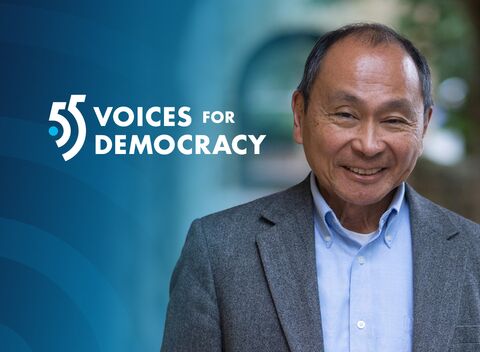
“55 Voices for Democracy” expands the 55 BBC radio messages Thomas Mann sent from his house in California to thousands of listeners from Germany, Switzerland, Sweden and occupied Netherlands and Czechia. In his monthly radio speeches between October 1940 and November 1945 Mann spoke out against fascist ideas and became the most significant German voice in exile.
As the political crisis in Europe and the US deepens, the time demands a strong response for the preservation of social and liberal values, for the renewal of our political vocabulary, and for overcoming political separation and manipulation. Thomas Mann’s belief that the “social renewal of democracy is both condition and warrant for its victory” rings true more than ever before.
“55 Voices for Democracy” brings together internationally esteemed intellectuals, scientists, and artists to present ideas for the renewal of democracy. Like Thomas Mann, they will deliver short “radio” talks combined with public events. Renowned intellectuals like Orhan Pamuk, Bruce Ackerman, Timothy Snyder, Seyla Benhabib and Larry Diamond have already confirmed their participation. Political Scientist Francis Fukuyama launches the series. The event is moderated by philosopher Armen Avanessian (Thomas Mann Fellow).
Francis Fukuyama is the Olivier Nomellini Senior Fellow at Stanford University’s Freeman Spogli Institute for International Studies. He has previously taught at the Paul H. Nitze School of Advanced International Studies at Johns Hopkins University and at the George Mason University School of Public Policy. Fukuyama was a researcher at the RAND Corporation and served as the deputy director for the State Department’s policy planning staff. He is the author of books like „Identity. The Demand for Dignity and the Politics of Resentment“, „The End of History and the Last Man“, and „America at the Crossroads: Democracy, Power, and the Neoconservative Legacy“.
Location
Thomas Mann House
1550 San Remo Drive
Pacific Palisades, CA 90272
Participation by invitation only.
Villa Aurora & Thomas Mann House e. V. is supported by the German Federal Foreign Office and Federal Government Commissioner for Culture and the Media.


Conference: Pocket Democracy
Seattle and Berlin
“Pocket Democracy” is a two day workshop and conference between Berlin and Seattle to investigate how digital technologies can be used for alternative political solutions.

Since their introduction roughly twelve years ago, smartphones have fundamentally altered the political and media landscape. Mobile devices have penetrated almost all fields of life. At the same time, false information, manipulated images and videos, as well as new surveillance practices are posing the question how political dangers of communication technologies might be hedged in the future.
The project “Pocket Democracy“ wants to focus on ideas and agents who see the dangers but who also investigate how digital technologies can be used for alternative political solutions. These concern algorithms that recognize false information or manipulated images and videos, that make visible discriminatory malpractice or that digitally enable free and secret elections. “Pocket Democracy“ begins with a day-long workshop to explore current developments in the field of digital democracy and to work on solutions for new forms of political engagement.

Keynote: Opal Tometi (co-founder Black Lives Matter, executive director Black Alliance for Just Immigration)
Participants: Armen Avanessian (Thomas Mann Fellow), Lance Bennett (University of Washington), Jessica L. Beyer (University of Washington), Christoph Bieber (University of Duisburg-Essen), Damian Borth (Thomas Mann Fellow / University of St. Gallen), Toby Crittenden, Paulina Fröhlich (Das Progressive Zentrum / Berlin), Adriana Groh (Prototype Fund / Berlin), Philipp Hübl (Philosopher / Berlin), Sarah Lohmann (Johns Hopkins University), Alexander Peterhaensel (Berlin University of the Arts / Berlin), Ramesh Srinivasan (UCLA), Alexander Sängerlaub (Stiftung Neue Verantwortung / Berlin), Max Senges (Google / Berlin), Niko Switek (University of Washington), Kristina Weissenbach (University of Washington / University Duisburg-Essen), Mellina White-Cusack (Blogger), et al.
I. PARTY POLITICS AND DIGITAL OPPOSITION
Political parties mobilize voters, and offer a platform for deliberation, aggregating and articulating preferences of their members. They are often deemed essential for democratic systems, but this position is not unchallenged. New movements resort to new ways of organizing, rallying around new topics and using new (online) tools and techniques to garner support. In some cases, individual politicians implement digital tools for strengthening their position within party structures and may use this dynamic for creating their own personalized platform. Concepts like liquid democracy and liquid feedback as well as tiny forms of participation offer alternatives to established forms of intraparty decision making. This challenges the overall layout of representative political institutions, advancing renewed calls for direct democracy. Parties did react and incorporate electronic platforms to mobilize and include their members into decision-making or extend their presence on third-party platforms. Do they reinvent themselves integrating new technologies or do they became obsolete as dinosaurs of a pre-digital era?
II. CYBERSECURITY AND DEMOCRATIC ELECTIONS
What applications are being used to track disinformation, and what kind of solutions still need to be developed to increase accountability in the political sphere? This workshop will give an overview of the threats faced by the US and Germany/the EU during recent elections coming from both cybersecurity attacks on infrastructure as well as disinformation campaigns targeted at specific groups and profiles of voters. It will inform students about what online, technical and political solutions are being used to prevent such interventions, and encourage students to come up with solutions to cybersecurity and information vulnerabilities that remain.
|
9:30 am |
Introductory Remarks |
| 10:00 am |
Workshops Round I Track I: PARTY POLITICS AND DIGITAL OPPOSITION with Niko Switek (University of Washington) Christoph Bieber (University Duisburg-Essen) and Kristina Weissenbach (University of Washington / University Duisburg-Essen) Track II: CYBERSECURITY AND DEMOCRATIC ELECTIONS with Jessica L. Beyer (University of Washington) and Sarah Lohmann (Johns Hopkins University) |
| 11:30 am |
Coffee Break |
| 11:45 am |
Workshops Round II |
| 1:00 pm |
Lunch |
|
2:00 - 3:00 pm |
Wrap up |
Goethe Pop Up, Chophouse Row, 1424 11th Ave STE 101, Seattle, WA 98122
Bios
Jessica L. Beyer is a Lecturer and Research Scientist in the Henry M. Jackson School for International Studies. Her current research focuses on cybersecurity issues, particularly non-state actors and international security. In 2012, she won the Association of Internet Researcher’s Dissertation Award. Her book, Expect Us: Online Communities and Political Mobilization, was published by Oxford University Press in 2014.
Christoph Bieber is is a professor of Ethics in Political Management at the University of Duisburg-Essen. He conducts research and writes on ethics and responsibility in politics, transparency and open communication as well as democracy and new media. He is a founding board member of pol-di.net e.V, the organisation responsible for operating Politik-digital.
Sarah Lohmann is currently the Senior Cyber Fellow with the American Institute for Contemporary German Studies at Johns Hopkins University. She manages projects which aim to increase agreement between Germany and the United States on improving cybersecurity and creating cybernorms. Since 2010, Dr. Lohmann has served as a university instructor at the Universität der Bundeswehr, where she is currently teaching cybersecurity policy. She achieved her doctorate in political science there in 2013, when she became a senior researcher working for the political science department. Prior to her tenure at the Universität der Bundeswehr, Dr. Lohmann was a press spokesman for the U.S. Department of State for human rights as well as for the Bureau of Near Eastern Affairs (MEPI).
Niko Switek is DAAD Visiting Assistant Professor for German Studies at the Henry M. Jackson School for International Studies and the Department of Political Science at the University of Washington. His research interests focus on political parties and party systems as well as on coalition politics. He wrote extensively about the German green party 'Bündnis 90/Die Grünen' and the green party family in Western Europe. In addition he worked on parties on European level ('Europarties') and just recently compiled a volume on fictional TV series about politics.
Kristina Weissenbach is an Affiliate Professor for Political Science at the University of Washington. She is an Assistant Professor and Coordinator of the Research Unit at the NRW School of Governance, Institute for Political Science, University of Duisburg-Essen (Germany). Her primary research interests include the organization and institutionalization of political parties, party assistance and institutions in new democracies. Currently, she organized a research group on "The Digitalization of political parties (DIPART)" at the University of Duisburg-Essen (funded by the Ministry for Culture and Science NRW, 2018-2022)
EVENING EVENT
| 6:00 pm |
Ramesh Srinivasan (UCLA): Beyond the Valley In his new, provocative book Beyond the Valley, Ramesh Srinivasan describes the internet as both an enabler of frictionless efficiency and a dirty tangle of politics, economics, and other inefficient, inharmonious human activities. Srinivasan focuses on the disconnection he sees between designers and users, producers and consumers, and tech elites and the rest of us. The recent Cambridge Analytica and Russian misinformation scandals exemplify the imbalance of a digital world that puts profits before inclusivity and democracy. In search of a more democratic internet, Srinivasan takes us to the mountains of Oaxaca, East and West Africa, China, Scandinavia, North America, and elsewhere, visiting the “design labs” of rural, low-income, and indigenous people around the world. He talks to a range of high-profile public figures—including Elizabeth Warren, David Axelrod, Eric Holder, Noam Chomsky, Lawrence Lessig, and the founders of Reddit, as well as community organizers, labor leaders, and human rights activists. To make a better internet, Srinivasan says, we need a new ethic of diversity, openness, and inclusivity, empowering those now excluded from decisions about how technologies are designed, who profits from them, and who are surveilled and exploited by them. |
| 7:00 pm | Drinks and get together |
The Cloud Room, 1424 11th Ave, Seattle, WA 98122
Bios
Ramesh Srinivasan is Professor of Information Studies and Design Media Arts at UCLA. He is author of the books “Beyond the Valley: How Innovators around the World are Overcoming Inequality and Creating the Technologies of Tomorrow” (MIT Press 2019) and “Whose Global Village? Rethinking How Technology Impacts Our World” with NYU Press. Ramesh makes regular appearances on NPR, The Young Turks, MSNBC, and Public Radio International, and his writings have been published in the Washington Post, Quartz, Huffington Post, CNN, and elsewhere.
Mellina White-Cusack is a Seattle resident who writes about how politics and culture impact our society. She blogs at The Seattle Conservative and has contributed her thoughts locally on The Evergrey and KUOW. She is curious about why our country has grown more and more divided in recent years, and how the lack of data-driven news and information has contributed to this national divide. In the past, Mellina has also contributed to DapperQ, a queer fashion site, and most recently served as Campaign Director for Christopher Rufo for City Council.
|
9:00 am |
Introductory remarks |
| 9:05 am |
Keynote (video stream to Berlin) Opal Tometi (Co-founder Black Lives Matter) Moderation: Armen Avanessian (Thomas Mann Fellow) |
| 10:15 am |
Session I: Digital Media and New Forms of Political Activism (Video stream to Berlin) Lance Bennett (University of Washington) Moderation: Toby Crittenden |
|
11:30 am |
Coffee Break |
| 11:45 am |
Session II: Cybersecurity and Democratic Elections Jessica L. Beyer (University of Washington) Moderation: Niko Switek (University of Washington) |
| 1:00 pm | End |
The Seattle Public Library, Central Library, Microsoft Auditorium
Bios
Armen Avanessian (*1973 in Vienna) is an Austrian philosopher, literary theorist, and political theorist. He has taught at the Free University of Berlin, among other institutions, and held fellowships in the German departments of Columbia University and Yale University. His work on Speculative realism and Accelerationism in art and philosophy has found a wide audience beyond academia. Amongst his recent publications: Miamification (Merve, 2017) and Future Metaphysics (Polity, 2019). In 2019, Armen Avanessian is fellow at the Thomas Mann House, Los Angeles.
Lance Bennett is Professor of Political Science and Ruddick C. Lawrence Professor of Communication at the University of Washington, Seattle USA and Senior Fellow at the Weizenbaum Institute for the Networked Society, Berlin. He is founding director of the Center for Communication and Civic Engagement, which focuses on how communication can enhance citizen engagement with society, politics, and global affairs.
Jessica L. Beyer is a Lecturer and Research Scientist in the Henry M. Jackson School for International Studies. Her current research focuses on cybersecurity issues, particularly non-state actors and international security. In 2012, she won the Association of Internet Researcher’s Dissertation Award. Her book, Expect Us: Online Communities and Political Mobilization, was published by Oxford University Press in 2014.
Christoph Bieber is is a professor of Ethics in Political Management at the University of Duisburg-Essen. He conducts research and writes on ethics and responsibility in politics, transparency and open communication as well as democracy and new media. He is a founding board member of pol-di.net e.V, the organisation responsible for operating Politik-digital.
Damian Borth is Professor of Artificial Intelligence & Machine Learning at the Institute for Computer Science at the University of St. Gallen. Before he served as the Director of the Deep Learning Competence Center at the German Research Center for Artificial Intelligence (DFKI) in Kaiserslautern and founding co-director of Sociovestix Labs, a social enterprise in the area of financial data science. He actively promotes the use of multimedia opinion mining for social good following the UN Principles for Responsible Investment (PRI) and the AI-for-Good initiative. In 2019, he is fellow at the Thomas Mann House, Los Angeles.
Toby Crittenden was born and raised in Seattle. He is the former Executive Director of the Washington Bus, the Evergreen State's political voice for the rising generation. He currently works with non-profit organizations to improve their culture and systems.
Adriana Groh is interested in the intersections of technology, policy and society. She works as program manager for the Prototype Fund, a funding program by the Open Knowledge Foundation and the Federal Ministry for Education and Research for software development in the field of Public Interest Tech, and co-founded wepublic, an app designed for digital dialogue between citizens and politicians. Adriana is a fellow of Launchbase, a pre-incubation program by the Maastricht Centre for Entrepreneurship, and the Social Impact Lab. She previously studied political science and European public policy and governance, with a focus on democratic innovations and participation.
Sarah Lohmann is currently the Senior Cyber Fellow with the American Institute for Contemporary German Studies at Johns Hopkins University. She manages projects which aim to increase agreement between Germany and the United States on improving cybersecurity and creating cybernorms. Since 2010, Dr. Lohmann has served as a university instructor at the Universität der Bundeswehr, where she is currently teaching cybersecurity policy. She achieved her doctorate in political science there in 2013, when she became a senior researcher working for the political science department. Prior to her tenure at the Universität der Bundeswehr, Dr. Lohmann was a press spokesman for the U.S. Department of State for human rights as well as for the Bureau of Near Eastern Affairs (MEPI).
Alexander Sängerlaub leads the project Disinformation in the digital Public Sphere at the Stiftung Neue Verantwortung (SNV). The project looks at the phenomenon based on an interdisciplinary approach. One major aim is to understand and explain the scope and effects of disinformation – together with experts from the US election campaign and the election. He is a fellow at the Institute for Strategic Dialogue (ISD) in London. Alexander studied Journalism & Communication Sciences and Psychology, as well as „Media and Political Communication“ at the Freie Universität Berlin.
Niko Switek is DAAD Visiting Assistant Professor for German Studies at the Henry M. Jackson School for International Studies and the Department of Political Science at the University of Washington. His research interests focus on political parties and party systems as well as on coalition politics. He wrote extensively about the German green party 'Bündnis 90/Die Grünen' and the green party family in Western Europe. In addition he worked on parties on European level ('Europarties') and just recently compiled a volume on fictional TV series about politics.
Opal Tometi is a globally recognized human rights advocate, strategist and writer of Nigerian-American descent. She has been active in social movements for over 15 years, and is widely known for her role as a co-founder of Black Lives Matter and for her years of service as the Executive Director of the United States first national immigrant rights organization for people of African descent – the Black Alliance for Just Immigration (BAJI). Opal addressed the United Nations General Assembly and appeared on CNN, MSNBC, BET and her writings have been published in outlets such as TIME, Seventeen and the Huffington Post.
Kristina Weissenbach is an Affiliate Professor for Political Science at the University of Washington. She is an Assistant Professor and Coordinator of the Research Unit at the NRW School of Governance, Institute for Political Science, University of Duisburg-Essen (Germany). Her primary research interests include the organization and institutionalization of political parties, party assistance and institutions in new democracies. Currently, she organized a research group on "The Digitalization of political parties (DIPART)" at the University of Duisburg-Essen (funded by the Ministry for Culture and Science NRW, 2018-2022)
Facilitated by Linnea Riensberg and Merlin Münch
|
8:30 am |
Registration: DISINFORMATION (Only few spots remaining) |
| 9:00 am |
Workshop Philip Hübl (Philosopher) |
| 11:30 am |
Registration: PARTY POLITICS AND DIGITAL OPPOSITION (completely booked / Waiting list) |
| 12:00 noon |
Workshop Paulina Fröhlich (Das Progressive Zentrum) |
| 2:30 pm |
Registration: DEMOCRATIC ELECTIONS (completely booked / Waiting list) |
| 3:00 pm |
Workshop Alexander Peterhaensel (Media artist and lecturer)
|
State Studio, Hauptstraße 3, 10827 Berlin
|
5:30 pm |
Registration |
|
5:50 pm |
Opening Remarks |
|
6:00 pm |
Keynote Lecture via live stream from Seattle: Opal Tometi (Co-founder Black Lives Matter) Q&A with Thomas Mann Fellow Armen Avanessian and audiences in Berlin and Seattle |
| 7:15 pm |
Panel discussion by live stream Digital Media and New Forms of Political Activism w/ Christoph Bieber (University Duisburg-Essen) |
| 8:30 pm |
Drinks and Get-together |
For participants in Seattle
Location
Oct 24 | Workshops | Goethe Pop Up, Chophouse Row, 1424 11th Ave STE 101, Seattle, WA 98122
Register for the workshops.
Oct 24 | Evening | The Cloud Room, 1424 11th Ave, Seattle, WA 98122
Register for the evening event.
Oct 25 | Conference | The Seattle Public Library, Central Library, Microsoft Auditorium, Seattle, WA 98122
Register for the conference.
For participants in Berlin
Location
Oct 25 | Workshops and evening event | State Studio, Hauptstraße 3, 10827 Berlin
Register for the workshops.
An event in cooperation with

![]()

Conference: Pocket Democracy
Seattle and Berlin
“Pocket Democracy” is a two day workshop and conference between Berlin and Seattle to investigate how digital technologies can be used for alternative political solutions.

Since their introduction roughly twelve years ago, smartphones have fundamentally altered the political and media landscape. Mobile devices have penetrated almost all fields of life. At the same time, false information, manipulated images and videos, as well as new surveillance practices are posing the question how political dangers of communication technologies might be hedged in the future.
The project “Pocket Democracy“ wants to focus on ideas and agents who see the dangers but who also investigate how digital technologies can be used for alternative political solutions. These concern algorithms that recognize false information or manipulated images and videos, that make visible discriminatory malpractice or that digitally enable free and secret elections. “Pocket Democracy“ begins with a day-long workshop to explore current developments in the field of digital democracy and to work on solutions for new forms of political engagement.

Keynote: Opal Tometi (co-founder Black Lives Matter, executive director Black Alliance for Just Immigration)
Participants: Armen Avanessian (Thomas Mann Fellow), Lance Bennett (University of Washington), Jessica L. Beyer (University of Washington), Christoph Bieber (University of Duisburg-Essen), Damian Borth (Thomas Mann Fellow / University of St. Gallen), Toby Crittenden, Paulina Fröhlich (Das Progressive Zentrum / Berlin), Adriana Groh (Prototype Fund / Berlin), Philipp Hübl (Philosopher / Berlin), Sarah Lohmann (Johns Hopkins University), Alexander Peterhaensel (Berlin University of the Arts / Berlin), Ramesh Srinivasan (UCLA), Alexander Sängerlaub (Stiftung Neue Verantwortung / Berlin), Max Senges (Google / Berlin), Niko Switek (University of Washington), Kristina Weissenbach (University of Washington / University Duisburg-Essen), Mellina White-Cusack (Blogger), et al.
I. PARTY POLITICS AND DIGITAL OPPOSITION
Political parties mobilize voters, and offer a platform for deliberation, aggregating and articulating preferences of their members. They are often deemed essential for democratic systems, but this position is not unchallenged. New movements resort to new ways of organizing, rallying around new topics and using new (online) tools and techniques to garner support. In some cases, individual politicians implement digital tools for strengthening their position within party structures and may use this dynamic for creating their own personalized platform. Concepts like liquid democracy and liquid feedback as well as tiny forms of participation offer alternatives to established forms of intraparty decision making. This challenges the overall layout of representative political institutions, advancing renewed calls for direct democracy. Parties did react and incorporate electronic platforms to mobilize and include their members into decision-making or extend their presence on third-party platforms. Do they reinvent themselves integrating new technologies or do they became obsolete as dinosaurs of a pre-digital era?
II. CYBERSECURITY AND DEMOCRATIC ELECTIONS
What applications are being used to track disinformation, and what kind of solutions still need to be developed to increase accountability in the political sphere? This workshop will give an overview of the threats faced by the US and Germany/the EU during recent elections coming from both cybersecurity attacks on infrastructure as well as disinformation campaigns targeted at specific groups and profiles of voters. It will inform students about what online, technical and political solutions are being used to prevent such interventions, and encourage students to come up with solutions to cybersecurity and information vulnerabilities that remain.
|
9:30 am |
Introductory Remarks |
| 10:00 am |
Workshops Round I Track I: PARTY POLITICS AND DIGITAL OPPOSITION with Niko Switek (University of Washington) Christoph Bieber (University Duisburg-Essen) and Kristina Weissenbach (University of Washington / University Duisburg-Essen) Track II: CYBERSECURITY AND DEMOCRATIC ELECTIONS with Jessica L. Beyer (University of Washington) and Sarah Lohmann (Johns Hopkins University) |
| 11:30 am |
Coffee Break |
| 11:45 am |
Workshops Round II |
| 1:00 pm |
Lunch |
|
2:00 - 3:00 pm |
Wrap up |
Goethe Pop Up, Chophouse Row, 1424 11th Ave STE 101, Seattle, WA 98122
Bios
Jessica L. Beyer is a Lecturer and Research Scientist in the Henry M. Jackson School for International Studies. Her current research focuses on cybersecurity issues, particularly non-state actors and international security. In 2012, she won the Association of Internet Researcher’s Dissertation Award. Her book, Expect Us: Online Communities and Political Mobilization, was published by Oxford University Press in 2014.
Christoph Bieber is is a professor of Ethics in Political Management at the University of Duisburg-Essen. He conducts research and writes on ethics and responsibility in politics, transparency and open communication as well as democracy and new media. He is a founding board member of pol-di.net e.V, the organisation responsible for operating Politik-digital.
Sarah Lohmann is currently the Senior Cyber Fellow with the American Institute for Contemporary German Studies at Johns Hopkins University. She manages projects which aim to increase agreement between Germany and the United States on improving cybersecurity and creating cybernorms. Since 2010, Dr. Lohmann has served as a university instructor at the Universität der Bundeswehr, where she is currently teaching cybersecurity policy. She achieved her doctorate in political science there in 2013, when she became a senior researcher working for the political science department. Prior to her tenure at the Universität der Bundeswehr, Dr. Lohmann was a press spokesman for the U.S. Department of State for human rights as well as for the Bureau of Near Eastern Affairs (MEPI).
Niko Switek is DAAD Visiting Assistant Professor for German Studies at the Henry M. Jackson School for International Studies and the Department of Political Science at the University of Washington. His research interests focus on political parties and party systems as well as on coalition politics. He wrote extensively about the German green party 'Bündnis 90/Die Grünen' and the green party family in Western Europe. In addition he worked on parties on European level ('Europarties') and just recently compiled a volume on fictional TV series about politics.
Kristina Weissenbach is an Affiliate Professor for Political Science at the University of Washington. She is an Assistant Professor and Coordinator of the Research Unit at the NRW School of Governance, Institute for Political Science, University of Duisburg-Essen (Germany). Her primary research interests include the organization and institutionalization of political parties, party assistance and institutions in new democracies. Currently, she organized a research group on "The Digitalization of political parties (DIPART)" at the University of Duisburg-Essen (funded by the Ministry for Culture and Science NRW, 2018-2022)
EVENING EVENT
| 6:00 pm |
Ramesh Srinivasan (UCLA): Beyond the Valley In his new, provocative book Beyond the Valley, Ramesh Srinivasan describes the internet as both an enabler of frictionless efficiency and a dirty tangle of politics, economics, and other inefficient, inharmonious human activities. Srinivasan focuses on the disconnection he sees between designers and users, producers and consumers, and tech elites and the rest of us. The recent Cambridge Analytica and Russian misinformation scandals exemplify the imbalance of a digital world that puts profits before inclusivity and democracy. In search of a more democratic internet, Srinivasan takes us to the mountains of Oaxaca, East and West Africa, China, Scandinavia, North America, and elsewhere, visiting the “design labs” of rural, low-income, and indigenous people around the world. He talks to a range of high-profile public figures—including Elizabeth Warren, David Axelrod, Eric Holder, Noam Chomsky, Lawrence Lessig, and the founders of Reddit, as well as community organizers, labor leaders, and human rights activists. To make a better internet, Srinivasan says, we need a new ethic of diversity, openness, and inclusivity, empowering those now excluded from decisions about how technologies are designed, who profits from them, and who are surveilled and exploited by them. |
| 7:00 pm | Drinks and get together |
The Cloud Room, 1424 11th Ave, Seattle, WA 98122
Bios
Ramesh Srinivasan is Professor of Information Studies and Design Media Arts at UCLA. He is author of the books “Beyond the Valley: How Innovators around the World are Overcoming Inequality and Creating the Technologies of Tomorrow” (MIT Press 2019) and “Whose Global Village? Rethinking How Technology Impacts Our World” with NYU Press. Ramesh makes regular appearances on NPR, The Young Turks, MSNBC, and Public Radio International, and his writings have been published in the Washington Post, Quartz, Huffington Post, CNN, and elsewhere.
Mellina White-Cusack is a Seattle resident who writes about how politics and culture impact our society. She blogs at The Seattle Conservative and has contributed her thoughts locally on The Evergrey and KUOW. She is curious about why our country has grown more and more divided in recent years, and how the lack of data-driven news and information has contributed to this national divide. In the past, Mellina has also contributed to DapperQ, a queer fashion site, and most recently served as Campaign Director for Christopher Rufo for City Council.
|
9:00 am |
Introductory remarks |
| 9:05 am |
Keynote (video stream to Berlin) Opal Tometi (Co-founder Black Lives Matter) Moderation: Armen Avanessian (Thomas Mann Fellow) |
| 10:15 am |
Session I: Digital Media and New Forms of Political Activism (Video stream to Berlin) Lance Bennett (University of Washington) Moderation: Toby Crittenden |
|
11:30 am |
Coffee Break |
| 11:45 am |
Session II: Cybersecurity and Democratic Elections Jessica L. Beyer (University of Washington) Moderation: Niko Switek (University of Washington) |
| 1:00 pm | End |
The Seattle Public Library, Central Library, Microsoft Auditorium
Bios
Armen Avanessian (*1973 in Vienna) is an Austrian philosopher, literary theorist, and political theorist. He has taught at the Free University of Berlin, among other institutions, and held fellowships in the German departments of Columbia University and Yale University. His work on Speculative realism and Accelerationism in art and philosophy has found a wide audience beyond academia. Amongst his recent publications: Miamification (Merve, 2017) and Future Metaphysics (Polity, 2019). In 2019, Armen Avanessian is fellow at the Thomas Mann House, Los Angeles.
Lance Bennett is Professor of Political Science and Ruddick C. Lawrence Professor of Communication at the University of Washington, Seattle USA and Senior Fellow at the Weizenbaum Institute for the Networked Society, Berlin. He is founding director of the Center for Communication and Civic Engagement, which focuses on how communication can enhance citizen engagement with society, politics, and global affairs.
Jessica L. Beyer is a Lecturer and Research Scientist in the Henry M. Jackson School for International Studies. Her current research focuses on cybersecurity issues, particularly non-state actors and international security. In 2012, she won the Association of Internet Researcher’s Dissertation Award. Her book, Expect Us: Online Communities and Political Mobilization, was published by Oxford University Press in 2014.
Christoph Bieber is is a professor of Ethics in Political Management at the University of Duisburg-Essen. He conducts research and writes on ethics and responsibility in politics, transparency and open communication as well as democracy and new media. He is a founding board member of pol-di.net e.V, the organisation responsible for operating Politik-digital.
Damian Borth is Professor of Artificial Intelligence & Machine Learning at the Institute for Computer Science at the University of St. Gallen. Before he served as the Director of the Deep Learning Competence Center at the German Research Center for Artificial Intelligence (DFKI) in Kaiserslautern and founding co-director of Sociovestix Labs, a social enterprise in the area of financial data science. He actively promotes the use of multimedia opinion mining for social good following the UN Principles for Responsible Investment (PRI) and the AI-for-Good initiative. In 2019, he is fellow at the Thomas Mann House, Los Angeles.
Toby Crittenden was born and raised in Seattle. He is the former Executive Director of the Washington Bus, the Evergreen State's political voice for the rising generation. He currently works with non-profit organizations to improve their culture and systems.
Adriana Groh is interested in the intersections of technology, policy and society. She works as program manager for the Prototype Fund, a funding program by the Open Knowledge Foundation and the Federal Ministry for Education and Research for software development in the field of Public Interest Tech, and co-founded wepublic, an app designed for digital dialogue between citizens and politicians. Adriana is a fellow of Launchbase, a pre-incubation program by the Maastricht Centre for Entrepreneurship, and the Social Impact Lab. She previously studied political science and European public policy and governance, with a focus on democratic innovations and participation.
Sarah Lohmann is currently the Senior Cyber Fellow with the American Institute for Contemporary German Studies at Johns Hopkins University. She manages projects which aim to increase agreement between Germany and the United States on improving cybersecurity and creating cybernorms. Since 2010, Dr. Lohmann has served as a university instructor at the Universität der Bundeswehr, where she is currently teaching cybersecurity policy. She achieved her doctorate in political science there in 2013, when she became a senior researcher working for the political science department. Prior to her tenure at the Universität der Bundeswehr, Dr. Lohmann was a press spokesman for the U.S. Department of State for human rights as well as for the Bureau of Near Eastern Affairs (MEPI).
Alexander Sängerlaub leads the project Disinformation in the digital Public Sphere at the Stiftung Neue Verantwortung (SNV). The project looks at the phenomenon based on an interdisciplinary approach. One major aim is to understand and explain the scope and effects of disinformation – together with experts from the US election campaign and the election. He is a fellow at the Institute for Strategic Dialogue (ISD) in London. Alexander studied Journalism & Communication Sciences and Psychology, as well as „Media and Political Communication“ at the Freie Universität Berlin.
Niko Switek is DAAD Visiting Assistant Professor for German Studies at the Henry M. Jackson School for International Studies and the Department of Political Science at the University of Washington. His research interests focus on political parties and party systems as well as on coalition politics. He wrote extensively about the German green party 'Bündnis 90/Die Grünen' and the green party family in Western Europe. In addition he worked on parties on European level ('Europarties') and just recently compiled a volume on fictional TV series about politics.
Opal Tometi is a globally recognized human rights advocate, strategist and writer of Nigerian-American descent. She has been active in social movements for over 15 years, and is widely known for her role as a co-founder of Black Lives Matter and for her years of service as the Executive Director of the United States first national immigrant rights organization for people of African descent – the Black Alliance for Just Immigration (BAJI). Opal addressed the United Nations General Assembly and appeared on CNN, MSNBC, BET and her writings have been published in outlets such as TIME, Seventeen and the Huffington Post.
Kristina Weissenbach is an Affiliate Professor for Political Science at the University of Washington. She is an Assistant Professor and Coordinator of the Research Unit at the NRW School of Governance, Institute for Political Science, University of Duisburg-Essen (Germany). Her primary research interests include the organization and institutionalization of political parties, party assistance and institutions in new democracies. Currently, she organized a research group on "The Digitalization of political parties (DIPART)" at the University of Duisburg-Essen (funded by the Ministry for Culture and Science NRW, 2018-2022)
Facilitated by Linnea Riensberg and Merlin Münch, the workshops will be held in German
|
8:30 am |
Registration: DISINFORMATION (Only few spots remaining) |
| 9:00 am |
Workshop Philip Hübl (Philosopher) |
| 11:30 am |
Registration: PARTY POLITICS AND DIGITAL OPPOSITION (completely booked / Waiting list) |
| 12:00 noon |
Workshop Paulina Fröhlich (Das Progressive Zentrum) |
| 2:30 pm |
Registration: DEMOCRATIC ELECTIONS (completely booked / Waiting list) |
| 3:00 pm |
Workshop Alexander Peterhaensel (Media artist and lecturer)
|
|
5:30 pm |
Registration (the evening event will be held in English) |
|
5:50 pm |
Opening Remarks |
|
6:00 pm |
Keynote Lecture via live stream from Seattle: Opal Tometi (Co-founder Black Lives Matter) Q&A with Thomas Mann Fellow Armen Avanessian and audiences in Berlin and Seattle |
| 7:00 pm |
Short intermission |
| 7:15 pm |
Panel discussion by live stream Digital Media and New Forms of Political Activism w/ Christoph Bieber (University Duisburg-Essen) |
| 8:30 pm |
Drinks and Get-together |
For participants in Seattle
Location
Oct 24 | Workshops | Goethe Pop Up, Chophouse Row, 1424 11th Ave STE 101, Seattle, WA 98122
Register for the workshops.
Oct 24 | Evening | The Cloud Room, 1424 11th Ave, Seattle, WA 98122
Register for the evening event.
Oct 25 | Conference | The Seattle Public Library, Central Library, Microsoft Auditorium, Seattle, WA 98122
Register for the conference.
For participants in Berlin
Location
Oct 25 | Workshops and evening event | State Studio, Hauptstraße 3, 10827 Berlin
Register for the workshops.
An event in cooperation with

![]()

Workshop: Pocket Democracy
Seattle and Berlin
“Pocket Democracy” is a two day workshop and conference between Berlin and Seattle to investigate how digital technologies can be used for alternative political solutions.

Since their introduction roughly twelve years ago, smartphones have fundamentally altered the political and media landscape. Mobile devices have penetrated almost all fields of life. At the same time, false information, manipulated images and videos, as well as new surveillance practices are posing the question how political dangers of communication technologies might be hedged in the future.
The project “Pocket Democracy“ wants to focus on ideas and agents who see the dangers but who also investigate how digital technologies can be used for alternative political solutions. These concern algorithms that recognize false information or manipulated images and videos, that make visible discriminatory malpractice or that digitally enable free and secret elections. “Pocket Democracy“ begins with a day-long workshop to explore current developments in the field of digital democracy and to work on solutions for new forms of political engagement.
Keynote: Opal Tometi (co-founder Black Lives Matter)
Participants: Armen Avanessian (Thomas Mann Fellow), Lance Bennett (University of Washington), Jessica L. Beyer (University of Washington), Christoph Bieber (Universität Duisburg-Essen), Damian Borth (Thomas Mann Fellow / Universität St. Gallen), Paulina Fröhlich (Das Progressive Zentrum / Berlin), Adriana Groh (Prototype Fund / Berlin), Philipp Hübl (Philosoph / Berlin), Sarah Lohmann (Johns Hopkins University), Alexander Peterhaensel (Universität der Künste Berlin / Berlin), Ramesh Srinivasan (UCLA), Alexander Sängerlaub (Stiftung Neue Verantwortung / Berlin), Max Senges (Google / Berlin, tbc), Niko Switek (University of Washington), Mellina White-Cusack (Blogger), et al.
|
9:30 am |
Introductory Remarks |
| 10:00 am |
Workshops Round I |
| 11:30 am |
Coffe Break |
| 11:45 am |
Workshops Round II |
| 12:00 pm |
Lunch |
| 1:30 pm |
Workshops Round III |
| 3:00 pm |
Coffee Break |
| 3:15 pm |
Wrap up |
Goethe Pop Up, Chophouse Row, 1424 11th Ave STE 101, Seattle, WA 98122
| 6:00 pm |
Ramesh Srinivasan: Beyond the Valley How Innovators around the World are Overcoming Inequality and Creating the Technologies of Tomorrow |
| 7:00 pm | Drinks and get together |
| 9:00 am | Introductory remarks |
| 9:05 am |
Keynote (video stream to Berlin) Opal Tometi (Co-founder Black Lives Matter) Moderation: Armen Avanessian |
| 10:00 am | Coffee Break |
| 10:15 am |
Session I: Digital Media and New Forms of Political Activism (Video stream to Berlin) |
| 11:30 am | Coffee Break |
| 11:45 am | Session II: Cybersecurity and Democratic Elections |
| 1:00 pm |
Lunch Round-table talks with experts and audience |
| END |
The Seattle Public Library, Central Library, Microsoft Auditorium
Facilitated by Linnea Riensberg and Merlin Münch, the workshops will be held in German
|
8:30 am |
Registration: DISINFORMATION (Only few spots remaining) |
| 9:00 am |
Workshop Philip Hübl (Philosopher) |
| 11:30 am |
Registration: PARTY POLITICS AND DIGITAL OPPOSITION (completely booked / Waiting list) |
| 12:00 noon |
Workshop Paulina Fröhlich (Das Progressive Zentrum) |
| 2:30 pm |
Registration: DEMOCRATIC ELECTIONS (completely booked / Waiting list) |
| 3:00 pm |
Workshop Alexander Peterhaensel (Media artist and lecturer)
|
|
5:30 pm |
Registration (the evening event will be held in English) |
|
5:50 pm |
Opening Remarks |
|
6:00 pm |
Keynote Lecture via live stream from Seattle: Opal Tometi (Co-founder Black Lives Matter) Q&A with Thomas Mann Fellow Armen Avanessian and audiences in Berlin and Seattle |
| 7:00 pm |
Short intermission |
| 7:15 pm |
Panel discussion by live stream Digital Media and New Forms of Political Activism w/ Christoph Bieber (University Duisburg-Essen) |
| 8:30 pm |
Drinks and Get-together |
For participants in Berlin
Location
Oct 25 | Workshops and evening event | State Studio, Hauptstraße 3, 10827 Berlin
Register for the workshops here.
For participants in Seattle
Location
Oct 24 | Workshops | Goethe Pop Up, Chophouse Row, 1424 11th Ave STE 101, Seattle, WA 98122
Register for the workshops.
Oct 24 | Evening | The Cloud Room, 1424 11th Ave, Seattle, WA 98122
Register for the evening event.
Oct 25 | Conference | The Seattle Public Library, Central Library, Microsoft Auditorium, Seattle, WA 98122
Register for the conference.
An event in cooperation with

![]()

Lecture Tour Frido Mann: "Democracy Will Win" — Toronto
Toronto


Born in the United States, Frido Mann sensed the democratic creed of his parents and grandparents from childhood on. They had managed to leave Europe for the U.S. before the outbreak of WWII. During his extended lecture tours, Thomas Mann, Frido's grandfather, addressed his American audiences with his speech “The Coming Victory of Democracy” warning of the dangers of fascism for a liberal democracy: “The social renewal of democracy is the presupposition and the guarantee of its victory.”
Following in his grandfather's tracks, Frido Mann is going to give lectures in numerous places in the United States and Canada. He will address the current crisis in the American and European democracies and the need for their restoration, on the basis of transatlantic dialogue.
Frido Mann was born in 1940 in Monterey/California. He studied music, catholic theology, and psychology and worked as a clinical psychologist in in Münster, Leipzig and Prague. Frido Mann was the executive director of the Institute for Medical Psychology at the University of Münster. He now lives in Munich and works as a freelance writer. His recent publications are "An die Musik. Ein autobiographischer Essay" (Ode to Music: An Autobiographical Essay) and — together with Christine Mann — "Es werde Licht. Die Einheit von Geist und Materie in der Quantenphysik" (Let there be Light: The Union of Spirit and Matter in Quantum Physics). He is 2019 Honorary Fellow at Thomas Mann House. In August 2018, S. Fischer published "Das Weiße Haus des Exils" (The White House of Exile) about the Thomas Mann House in Los Angeles.
Location
Toronto International Festival of Authors
Toronto, Canada
October 26 and 27, 2019
This event is part of a Lecture Tour of Professor Mann. It is made possible by the support of the Alfried Krupp von Bohlen und Halbach-Stiftung.


- September 20: New York City
- September 23 and 24: Brandeis University
- September 26: Denver
- September 27: Kansas City
- October 1: Washington DC
- October 4: Portland
- October 8: Los Angeles
- October 9: Long Beach
- October 10: Berkeley
- October 12: San Francisco
- October 15–25: Dartmouth College
- October 29: Toronto
Lecture with Stefan Keppler-Tasaki: “Zen in America”
Los Angeles
Zen in America: Doris Dörrie’s Documentary Film How to Cook Your Life (2007)

Featuring the American Zen Buddhist priest Edward Espe Brown in her documentary film How to Cook Your Life (2007), German director Doris Dörrie brings two prominent lines of her work together: the lessons from American (film) culture at the starting point of her career and her interest in Japan both as an affective geography and a culture of emotional control. The camera observes the Zen chef as he is teaching cooking classes mainly at the San Francisco Zen Center founded by his teacher Shunryu Suzuki, a major figure of international Buddhism. We encounter a Zen master who not only quotes keenly from Buddhist classics such as Dōgen’s Instructions for the Cook (1237), but who also struggles with strong emotions such as anger and despair. Humor is the overall sentiment. By these characteristics, Brown makes a typical hero of Dörrie’s cinema at the intersection between arthouse, comedy and melodrama.
“When you are cooking you’re not just cooking, not just working on food, you are also working on yourself, on other people.” — Edward Espe Brown
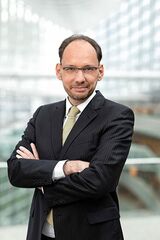
Stefan Keppler-Tasaki, born in 1973 in Wertheim, scholarship holder of the Studienstiftung des deutschen Volkes from 1993 to 1999 and again from 2000 to 2003, assistant professor for modern German literature at the Julius-Maximilians-Universität Würzburg from 2002 to 2005 and at the FU Berlin from 2005 to 2008, taught as Junior Professor for Modern German Literature at the Friedrich Schlegel Graduate School of the FUB from 2008 to 2012. In 2012, he became professor for Modern German Literature at the University of Tokyo, Faculty of Letters / Graduate School of Humanities and Sociology. In 2014, Keppler-Tasaki was appointed Einstein Visiting Fellow at the FUB. Author of Grenzen des Ich. Die Verfassung des Subjekts in Goethes Roman und Erzählungen. (De Gruyter, 2006) and of Alfred Döblin. Massen, Medien, Metropolen. (Königshausen & Neumann, 2018). Co-Founder/co-publisher of the book series WeltLiteraturen (De Gruyter) and Rezeptionskulturen (Königshausen & Neumann).
Location:
Oldenborg Luncheon Colloquium
Pomona College
350 N. College Way
Claremont, CA 91711
Villa Aurora & Thomas Mann House e. V. is supported by the German Federal Foreign Office and Federal Government Commissioner for Culture and the Media.


Lecture and Panel Discussion: "J. R. Davidson – A California Modernist"
Los Angeles, CA

Southern California has been one of the centers of modern architecture. An important but typically overlooked figure was the Berlin-born architect Julius Ralph Davidson. Davidson, who lived in Los Angeles since the beginning of the 1920s, worked in the field of interior design and furniture design before he began focusing on architectural projects.
In 1940, Davidson got in touch with author Thomas Mann. Mann spent the previous years of his exile in Princeton but decided to move to Los Angeles with his family. The Manns bought a property in the hills of Pacific Palisades and hired J.R. Davidson to build their house, which was intended to be aligned with the family’s lifestyle as well as their daily routines.
Whereas Davidson’s previous houses were built in an international style, the house on San Remo Drive resembles a moderate modernist design. The interior embodied German bourgeois culture in contrast to the modern white appearance of the house. Journalist Heinrich Wefing noted: “The outside form suggests an adjustment to the new Californian world, while on the inside, you see the attempt to reconstruct, even if only partially, what was lost.”
Panelists include Lilian Pfaff, Davidson scholar, author and curator of the current exhibit at University of California, Santa Barbara “J.R. Davidson: A European Contribution to California Modernism.” After her lecture she will be joined by Christopher Long, Ph.D. the Martin S. Kermacy Centennial Professorship in Architecture at the University of Texas and Monica Penick, Ph.D. and Associate Professor of Design at the University of Texas. The panel will be moderated by Kenneth Briesch, Ph.D. Associate Professor at the School of Architecture at the University of Southern California.
Location
Thomas Mann House
1550 N San Remo Drive
Pacific Palisades, CA 90272
Wednesday, November 6, 2019 - 7pm
Participation by invitation only.
An event in cooperation with Society of Architectural Historians/Southern California Chapter

Reflecting on 1989: What the past three decades can tell us about the future
Berlin

Thirty years ago, the Berlin Wall fell, ending the division of an entire continent. The bipolar system of the Cold War dissolved and a new optimism about the future took hold in the West and around the globe. Liberal democracy was on the march and Francis Fukuyama’s thesis of “the end of history” pointed the way ahead. Today, the hopeful mood of 1989 has been replaced by gloom. The West is no longer unified in its support for liberal democracy and a new geopolitical competition is reshaping the international system. What lessons can we draw from 1989 to face current challenges? How should we handle today’s uncertainty to protect democracy tomorrow?
Keynote
Francis Fukuyama, Professor of Political Science, Stanford University
Joining a panel discussion with
Thomas Kleine-Brockhoff, Vice President, The German Marshall Fund of the United States
Alina Mungiu-Pippidi, Professor of Democracy Studies, The Hertie School
This event is part of the series “The Backlash Against Liberal Democracy” launched by the German Marshall Fund of the United States, Villa Aurora & Thomas Mann House e.V., and the Robert Bosch Foundation. The series brings together influential voices from Europe and the United States to shed light on different aspects of the challenges that liberal democracies face. Speakers so far have included historian Timothy Snyder from Yale University as well as political scientist Daniel Ziblatt from Harvard University. This event is organized in cooperation with and generously supported by the Hertie School.
A cooperation with the German Marshall Fund of the United States, Robert Bosch Stiftung and Hertie School
Location
Hertie School, Forum, 1st floor, Friedrichstraße 180, 10117 Berlin
How to register:
Please send an e-mail to events[at]hertie-school[dot]org
Please include the following:
- full name
- title (optional)
- organisation (optional)
Please note that this event is by invitation only.

Democracy under Threat? The Role of Media in the Age of Populism
Berlin
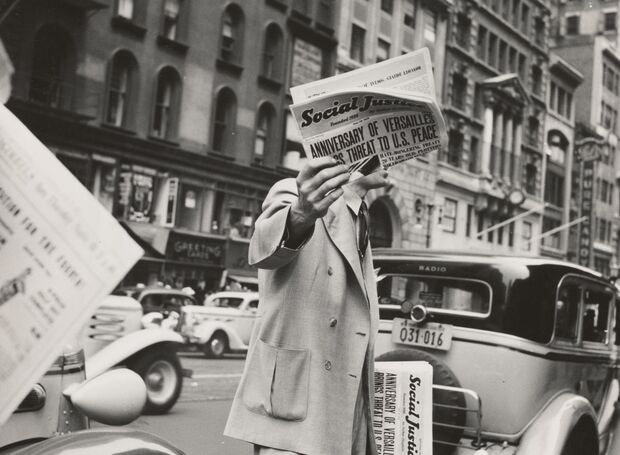
with
Karen Attiah
Global Opinions Editor, The Washington Post
Ines Pohl
Editor-in-Chief, Deutsche Welle
moderated by
Barbara Junge
Deputy Editor-in-Chief, taz
The media is increasingly under attack. Its role as the fourth estate in democracies is eroding and many doubt its position as fair arbiter of information. How should media react to the ongoing attacks by increasingly powerful populist forces? How can media retake responsibility and restore trust? Is freedom of the press in danger and, if yes, how can it be defended? What will be the consequences for democracy? What can we expect for the U.S. presidential election in 2020?
This event is part of the series “The Backlash Against Liberal Democracy”, which brings together influential voices from Europe and the United States to shed light on different aspects of the challenges that liberal democracies face. Speakers so far have included Timothy Snyder, Daniel Ziblatt, and Francis Fukuyama.
The event will be followed by a reception.
A cooperation with the German Marshall Fund of the United States and taz. Supported by Robert Bosch Stiftung
Location
taz Kantine, Friedrichstraße 21, 10969 Berlin
To RSVP or if you have any questions, please contact Mirko Lux via email (mirko.lux@vatmh.org) or telephone (+49 30 20623640).
Bringing It All Back Home: Thomas Mann, America, and Democracy
Los Angeles
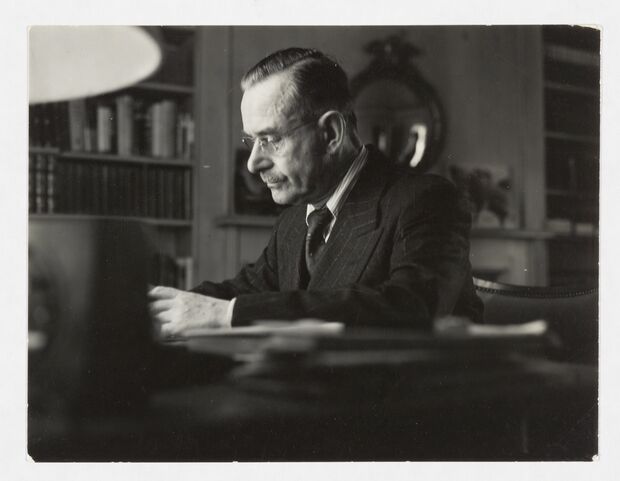
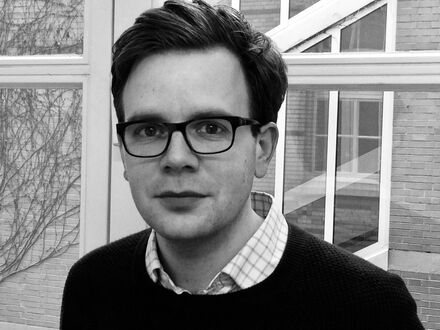
Bringing It All Back Home: Thomas Mann, America, and Democracy
Lunch talk with Kai Sina (University of Göttingen).
As admirable as Thomas Mann's advocacy for democracy in times of Nazi barbarism doubtlessly is—his concept of democracy remains quite extravagant. Critics have stressed this time and again. What he regards as democracy, they consider from the perspective of practical politics as rather naive. But this critical perception is based on a fundamental misunderstanding. Thomas Mann is primarily interested in democracy as a basic condition for our existence as modern beings. Accordingly, his democratic beliefs are not shaped by political theory, but by literature, namely by Walt Whitman, whose writings and works he had already studied in the 1920s. This finally explains why Mann's political engagement in the USA, at least in general, was highly adaptable. As for his understanding of democracy, he, the émigré, did not enter the United States as a stranger—he came home. Lunch talk with Kai Sina (University of Göttingen), moderated by David Kim (UCLA).
Kai Sina is a literary scholar at the University of Göttingen. His research focuses on the history of transatlantic literature. In 2017, he published an essay on Susan Sontag and Thomas Mann. It will be followed this year by a book on “Collective Poetry.” Its subject is the relationship between modern literature and the open society. It includes studies on Goethe, Emerson, Whitman and Mann.
Villa Aurora & Thomas Mann House e. V. is supported by the German Federal Foreign Office and Federal Government Commissioner for Culture and the Media.


"On: Changing Times" - Book Launch with Armen Avanessian
Los Angeles
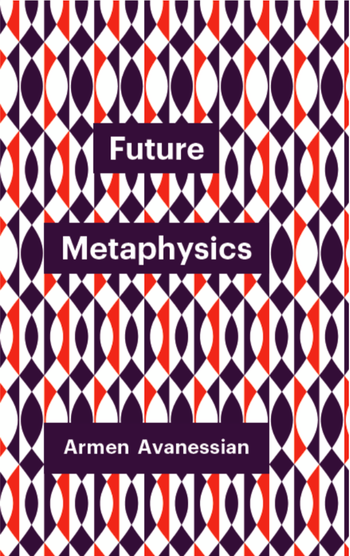
"Future Metaphysics," a new book by Thomas Mann Fellow Armen Avanessian, is to be launched not in a single event, but in a series of real, speculative and symbolic “book launches.” The book launches are an ongoing site of recursive encounters between Avanessian and Los Angeles artists and institutions.
"Future Metaphysics" was originally commisioned as a series of experimental texts corresponding to each room of the Moscow Museum of Modern Art. A series of events now generate from each of the book’s chapters, and unfold across divergent contexts of academic and cultural institutions. LA artists Scarlett Kim, Eric Fanghanel and Parch Es, respond to Avanessian’s activities in the form of microcultural productions: performative strategies, relational scores and media interventions. The collision and intersection between them launches Future Metaphysics, repeatedly and unrelentingly, in a multiplicity of directions. The series captures not only the proposals of the book but the dynamics of the writing process and institutional logics at play. Avanessian and artists contaminate and alienate each other, abolishing the distinction between theory and practice, and rewriting the terms of the “book launch.” A web of connections extend outward from the book like tendrils of slime that assemble and disassemble contingently: from Germany to the US, from Thomas Mann House to Los Angeles universities, from major institutions to grassroots interventions, and from academic environment to art installation.
The event "On: Changing Times" is a conversation between Armen Avanessian and Arne de Boever on the subject of time. The conversation will be intervened by artists Scarlett Kim and Parch Es using a time-altering technique developed by writer William Burroughs.
Armen Avanessian studied philosophy and political science in Vienna and Paris. After completing his dissertation in literature, he worked at the Free University Berlin from 2007–2014. He has previously been a Visiting Fellow in the German Department at Columbia University and the German Department at Yale University as well as Visiting Professor at various art academies in Europe and the US. In Berlin, Avanessian is the editor at large at Merve Verlag and in charge of the theory program at the internationally acclaimed theatre Volksbühne. He is a co-founder of the bilingual research platform Spekulative Poetik (www.spekulative-poetik.de), conducting a series of events, translations and publications. His work is translated into various languages. Forthcoming in German are two monographs, One plus One and I –I (Merve, 2019), both written in collaboration with Anke Hennig. Forthcoming in English is Future Metaphysics (Polity, 2019).
Find more information about the book and the event series here.
Location:
Wednesday, December 4 at California Institute of the Arts
2pm - 4pm
xbox (Main Gallery Conference Room)
24700 McBean Pkwy
Valencia, CA 91355
The event is free for the public
Lecture by Stefan Keppler-Tasaki: “With the Eyes of a Global Citizen.” Alfred Döblin as “Berliner” and Cosmopolitan
Los Angeles

With his representation of the masses, the Berlin novelist and exile writer Alfred Döblin (1878–1957) introduced a new element to modern German fiction. Döblin, who gained international renown with his novel Berlin, Alexanderplatz, rightfully earned his reputation as the bard of Berlin. From the beginning, though, he pursued his epic style not only with reference to Berlin, but also from consideration of such places as China, Warsaw, Paris, and American cities such as Los Angeles, where he lived from 1940 to 1945. A psychiatrist by profession and a proletarian by conviction, he rejected cosmopolitanism as a bourgeois lifestyle but opened up the possibility of a proletarian cosmopolitanism. Hence, his remark in “Impressions of New York” (1939): “As soon as we set foot on American soil, we are poor people, proletarians.” – This lecture deals with the intersection of Döblin’s Berlin images and his international experiences.
USC Lecture Series “Exile and Resistance – Migrants and Refugees in Literature, History, and Public Affairs”. The lecture series is a collaboration between USC Libraries, USC Dornsife’s Department of French and Italian, and USC Dornsife’s Max Kade Institute for Austrian-German-Swiss Studies.
Stefan Keppler-Tasaki is an associate professor of modern German literature at the University of Tokyo’s Faculty of Letters. He was also an assistant and junior professor of modern German literature at the FU Berlin from 2005 to 2012 and is currently a fellow at the Thomas Mann House Los Angeles.
Villa Aurora & Thomas Mann House e. V. is supported by the German Federal Foreign Office and Federal Government Commissioner for Culture and the Media.


Right-Wing (Media) Spaces
Los Angeles
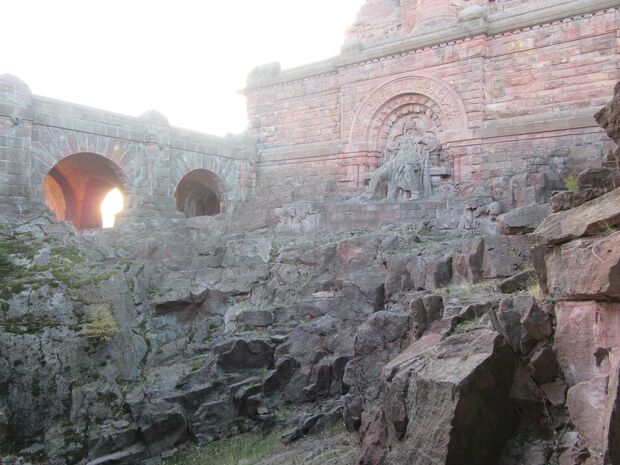

The United States as well as Europe have seen a return of right-wing tendencies in the political landscape. And this rise of a (new) political right has in turn infected our physical and digital landscapes as well. Philosopher and Thomas Mann Fellow Armen Avanessian invites to an evening of comparative spatial and political investigation: how are buildings, structures and monuments sites for a political struggle for meaning, myth and hegemony? How did the ‘hinterland’ morph into an ideological fringe? Are new technologies neutral tools, equally wielded on both sides of the aisle, or they themselves a cause for populism and polarization? Join Avanessian and his guests at NAVEL on December 6, when they will be hot on the heels of political extremists in Europe, the US, and online.
Stephan Trüby (Institute for Principles of Modern Architecture, Stuttgart) will present his research from the European context. The results of the project have been collected in the Rechte Räume edition of the Berlin-based ARCH+ magazine and aim to fundamentally re-politicize architectural discourse: “right-wing spaces” aren't discussed with regard to “good” or “bad” architecture but with a view towards how politics claims spaces.
After his presentation, Armen Avanessian’s American guests are invited to take the conversation into the local context. Safiya Noble (UCLA) will discuss right-wing space creation and infrastructure online, as well as the inherent prejudices, injustices and racism of algorithmic architecture. Jason Luger (UC Berkeley) will take a look at the American urban and regional fringe and the suburbanization of the right.
Armen Avanessian studied philosophy and political science in Vienna and Paris. He has taught at the Freie Universität Berlin, Columbia University, Yale University as well as various art academies in Europe and the US. In Berlin, Avanessian is the editor at large at Merve Verlag and runs the theory program "Avanessian and Enemies" at the internationally acclaimed theatre Volksbühne.
Jason Luger is an urban geographer and lecturer in the UC Berkeley College of Environmental Design. His research focuses on urban space: the politics of space, the networks of space, and the interface between digital space and place. In particular, he is interested in authoritarian urban space, offline and online.
Safiya Umoja Noble is an Associate Professor at UCLA in Information Studies and the Co-Director of the UCLA Center for Critical Internet Inquiry. She is the author of a best-selling book on racist and sexist algorithmic bias in commercial search engines, Algorithms of Oppression: How Search Engines Reinforce Racism (NYU Press).
Stephan Trüby is a professor and director of the Institute for Architecture and Cultural Theory (IGmA) at the University of Stuttgart. His publications include Exit-Architecture. Design between War and Peace(2008), Germania, Venezia. The German Entries to the Venice Architecture Biennale since 1991 (2016, with Verena Hartbaum) and History of the Corridor (2018). He is a permanent contributor to the journal ARCH+.
Location:
NAVEL
1611 S Hope Street
Los Angeles, CA 90015
RSVP here for free:
https://withfriends.co/event/3078529/ring_wing_media_spaces
In cooperation with NAVEL

Der Villa Aurora & Thomas Mann House e. V. wird gefördert vom Auswärtigen Amt und von der Beauftragten der Bundesregierung für Kultur und Medien.


Seminar: Futuros posibles #1: La verdad es ciencia es ficción
Mexico City
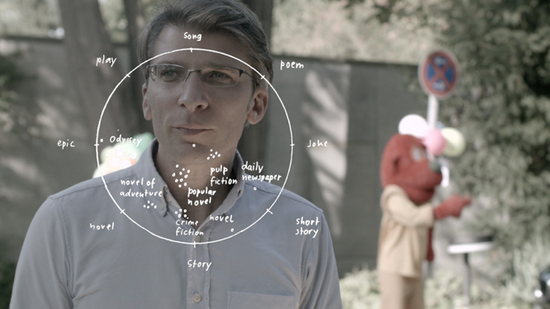
Philosopher and Thomas Mann Fellow Armen Avanessian is leading a two-art seminar at Museo Tamayo in Mexico City. The first part is a screening of his movie Hyperstition, the second part will be an open discussion about the movie and two introductory texts on speculative realism and accelerationism, which will be distributed to the particpants beforehand. During the seminar, Armen Avanessian will also talk about some of his recent books published in Spanish: Aceleracionismo. Caja Negra Editora. Miamificación y Realismo Especulativo. Materia Obscura Editorial.
Armen Avanessian studied philosophy and political science in Vienna and Paris. After earning his Ph.D. in literature, he worked as a freelance journalist, editor, and on staff for various publishers in Paris and London. From 2007·2014, he taught at the Free University Berlin. In 2011 and 2012, Avanessian was Visiting Fellow at the German Departments of Columbia University and Yale University, respectively. In recent years, he taught as guest professor at art academies in Europe and the US (CalArts). Avanessian is the founder of the bilingual research platform Spekulative Poetik (www.spekulative-poetik.de) and of the Bureau of Cultural Strategies (www.bureauforculturalstrategies.com), as well as editor and publisher of a book series at MERVE Verlag. He also coordinates a weekly series on philosophical theory at the Volksbühne. His books and anthologies have been translated into various languages.
Location:
Av. Paseo de la Reforma 51
Polanco, Bosque de Chapultepec I Secc, Miguel Hidalgo
11580 Ciudad de México, CDMX, Mexico
RSVP here
Villa Aurora & Thomas Mann House e. V. is supported by the German Federal Foreign Office and Federal Government Commissioner for Culture and the Media.


"Introduction: Metaphysics" - Book Launch with Armen Avanessian
Los Angeles

"Future Metaphysics," a new book by Thomas Mann Fellow Armen Avanessian, is to be launched not in a single event, but in a series of real, speculative and symbolic “book launches.” The book launches are an ongoing site of recursive encounters between Avanessian and Los Angeles artists and institutions.
"Future Metaphysics" was originally commisioned as a series of experimental texts corresponding to each room of the Moscow Museum of Modern Art. A series of events now generate from each of the book’s chapters, and unfold across divergent contexts of academic and cultural institutions. LA artists Scarlett Kim, Eric Fanghanel and Parch Es, respond to Avanessian’s activities in the form of microcultural productions: performative strategies, relational scores and media interventions. The collision and intersection between them launches Future Metaphysics, repeatedly and unrelentingly, in a multiplicity of directions. The series captures not only the proposals of the book but the dynamics of the writing process and institutional logics at play. Avanessian and artists contaminate and alienate each other, abolishing the distinction between theory and practice, and rewriting the terms of the “book launch.” A web of connections extend outward from the book like tendrils of slime that assemble and disassemble contingently: from Germany to the US, from Thomas Mann House to Los Angeles universities, from major institutions to grassroots interventions, and from academic environment to art installation.
The event "Introduction: Metaphysics" is a joint book launch between Avanessian and artist Warren Neidich. They will discuss their new books "Future Metaphysics" and "Glossary of Cognitive Activism," respectively. Material from previous book launches and the authors’ work will punctuate their discussion contingently.
Armen Avanessian studied philosophy and political science in Vienna and Paris. After completing his dissertation in literature, he worked at the Free University Berlin from 2007–2014. He has previously been a Visiting Fellow in the German Department at Columbia University and the German Department at Yale University as well as Visiting Professor at various art academies in Europe and the US. In Berlin, Avanessian is the editor at large at Merve Verlag and in charge of the theory program at the internationally acclaimed theatre Volksbühne. He is a co-founder of the bilingual research platform Spekulative Poetik (www.spekulative-poetik.de), conducting a series of events, translations and publications. His work is translated into various languages. Forthcoming in German are two monographs, One plus One and I –I (Merve, 2019), both written in collaboration with Anke Hennig. Forthcoming in English is Future Metaphysics (Polity, 2019).
Find more information about the book and the event series here.
Location:
Sunday, December 15 at Hauser & Wirth
3pm-5pm
901-909 E 3rd St,
Los Angeles, CA 90013
The event is free for the public
An Evening of Music with Michael Volle and Bill Kinderman
Los Angeles
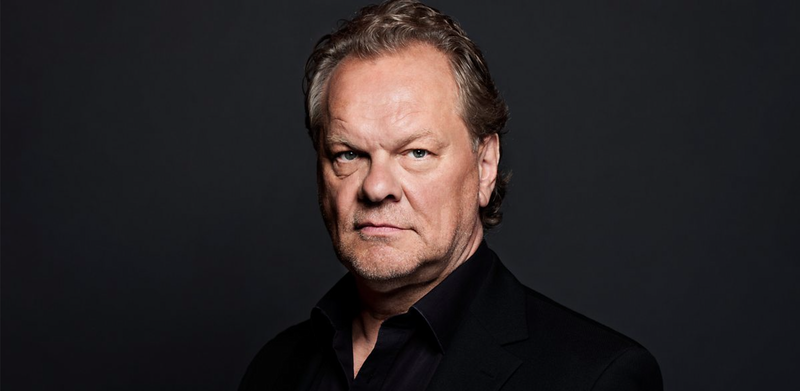
Thomas Mann described the German art song as its own “world of emotions and affections.” Already in his childhood, he admired the songs of Schubert, Schumann, Franz, Brahms, Liszt and the “first post-Wagnerian enunciations.” Due to his friendship with the conductor and pianist Bruno Walter, musical evenings became an integral part of the life in the Mann family. Mann had a passion for especially Schumann. “There is nothing more beautiful to listen to,” he said about Schumann’s song Zwielicht, which he admires as the “lyrical amalgamation of word and sound in a song.”
In the spirit of the Mann’s musical salons, the acclaimed baritone Michael Volle will visit San Remo Drive for an evening of music. Volle will be accompanied by pianist William Kinderman, Professor at the Herb Alpert School of Music (UCLA).
Michael Volle is one of the most sought-after singers of our time. The baritone is a mainstay at opera houses like the Metropolitan Opera New York, the State Operas in Munich and Vienna, the Teatro alla Scala Milan and the Royal Opera House. He is one of the leading interpreters of German repertoire. This includes the title roles in Wagner‘s Der fliegende Holländer, Wotan/Wanderer in the Ring des Nibelungen as well as roles by Richard Strauss such as Barak (Die Frau ohne Schatten). Volle is also a dedicated Lied singer and frequent guest at prestigious festivals and the world’s most renowned concert halls and orchestras.
William Kinderman was born in 1952 in Philadelphia, USA. He studied philosophy at the University of Vienna and music at Yale and the University of California, Berkeley, where he received his PhD in 1980. The most notable of his piano teachers was Dieter Weber at the Hochschule für Musik in Vienna. Kinderman has received awards from the Alexander von Humboldt Foundation and the Social Sciences and Humanities Research Council of Canada. He is holder of the Leo M. Klein and Elaine Krown Klein Chair in Performance Studies and professor of music at the UCLA Herb Alpert School of Music.
Program
| Richard Wagner | Blick ich umher in diesem edlen Kreise (Tannhäuser) |
| Robert Schumann | Lieder nach Heinrich Heine |
| Abends am Strand op.45,3 | |
| Der arme Peter I-III op.53,3 | |
| Tragödie I/II op.64,3 | |
| Die Lotosblume op.25,7 | |
| Dein Angesicht, so lieb und schön op.127,2 | |
| Erich Wolfgang Korngold | Mein Sehnen, mein Wähnen (Die tote Stadt) |
| Franz Schubert |
3 italienische Lieder D 911 |
| L'incanto degli occhi (Metastasio) | |
| Il traditor deluso (Metastasio) | |
| Il modo di prender moglie (anonym) | |
| Richard Wagner | Wie Todesahnung.../O du mein holder Abendstern (Tannhäuser) |
| Gustav Mahler | Lieder nach Friedrich Rückert |
| Ich atmet' ein linden Duft | |
| Liebst Du um Schönheit | |
| Blicke mir nicht in die Lieder | |
| Um Mitternacht | |
| Ich bin der Welt abhanden gekommen |
Location
Thomas Mann House
1550 N San Remo Drive
Pacific Palisades, CA 90272
Participation by invitation only.
Villa Aurora & Thomas Mann House e. V. is supported by the German Federal Foreign Office and Federal Government Commissioner for Culture and the Media.


„Dieser absurde Zustand Europas.“
Berlin
Prof. Dr. Friedhelm Marx (University of Bamberg & Thomas Mann Fellow 2020)
„Dieser absurde Zustand Europas.“
Thomas Mann's Visions for Europe during the Weimar Republic
During the crisis years of the Weimar Republic, Thomas Mann attributed increasing importance to the cultural and political unification of Europe. The stronger the nationalist movements (not only) in Germany, the more vehemently he voted in essays and political statements for overcoming the inner-European contradictions, such as in the speech "Europe as a cultural community", which he held on May 18, 1930 at the second Paneuropa Congress held in Berlin.
The talk introduces Thomas Mann's most important ideas and initiatives in Europe, including the media reception of the Weimar Republic, and links them to the aesthetic project of a Europeanization of prose, to which he had already subscribed to with "The Buddenbrooks".

















